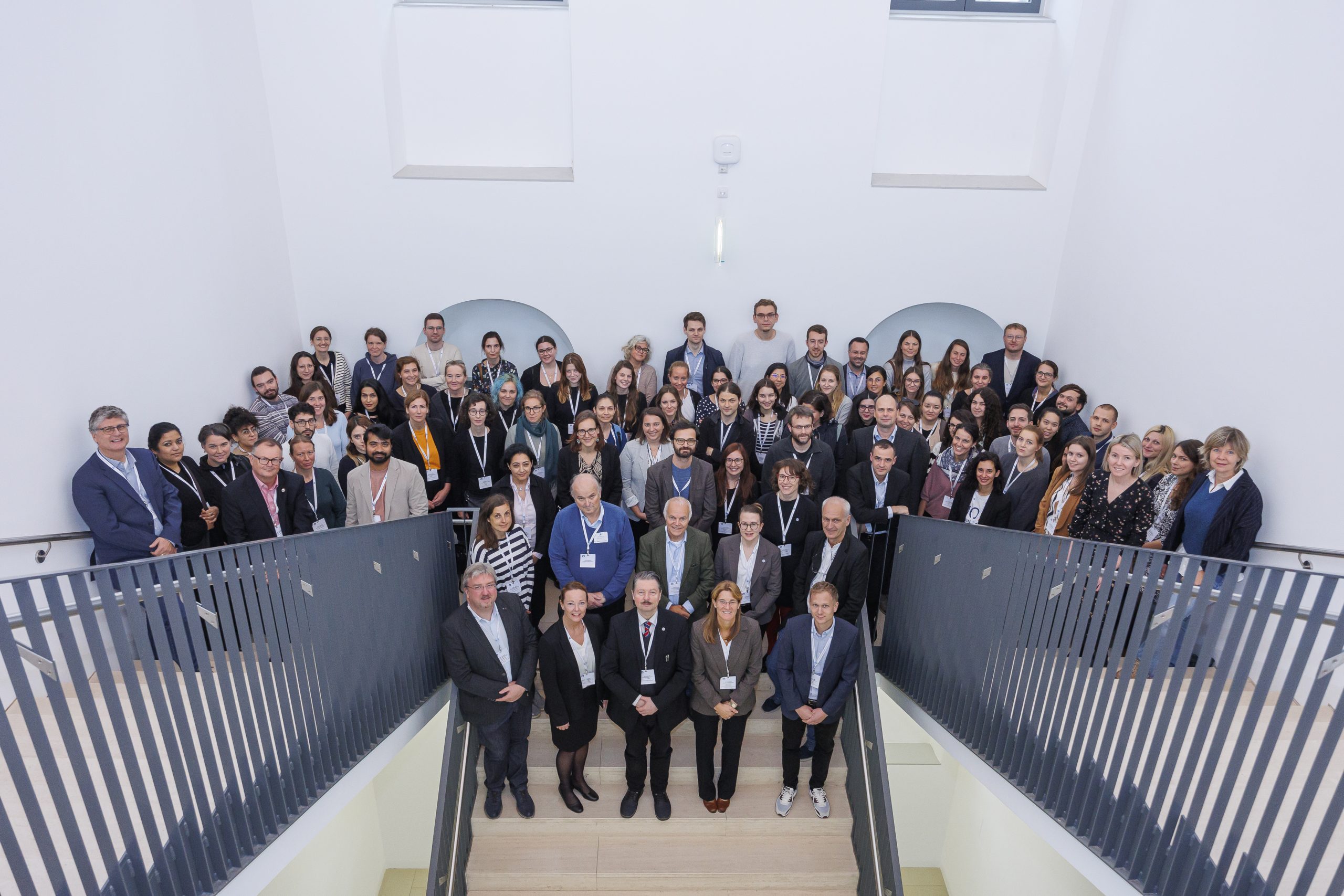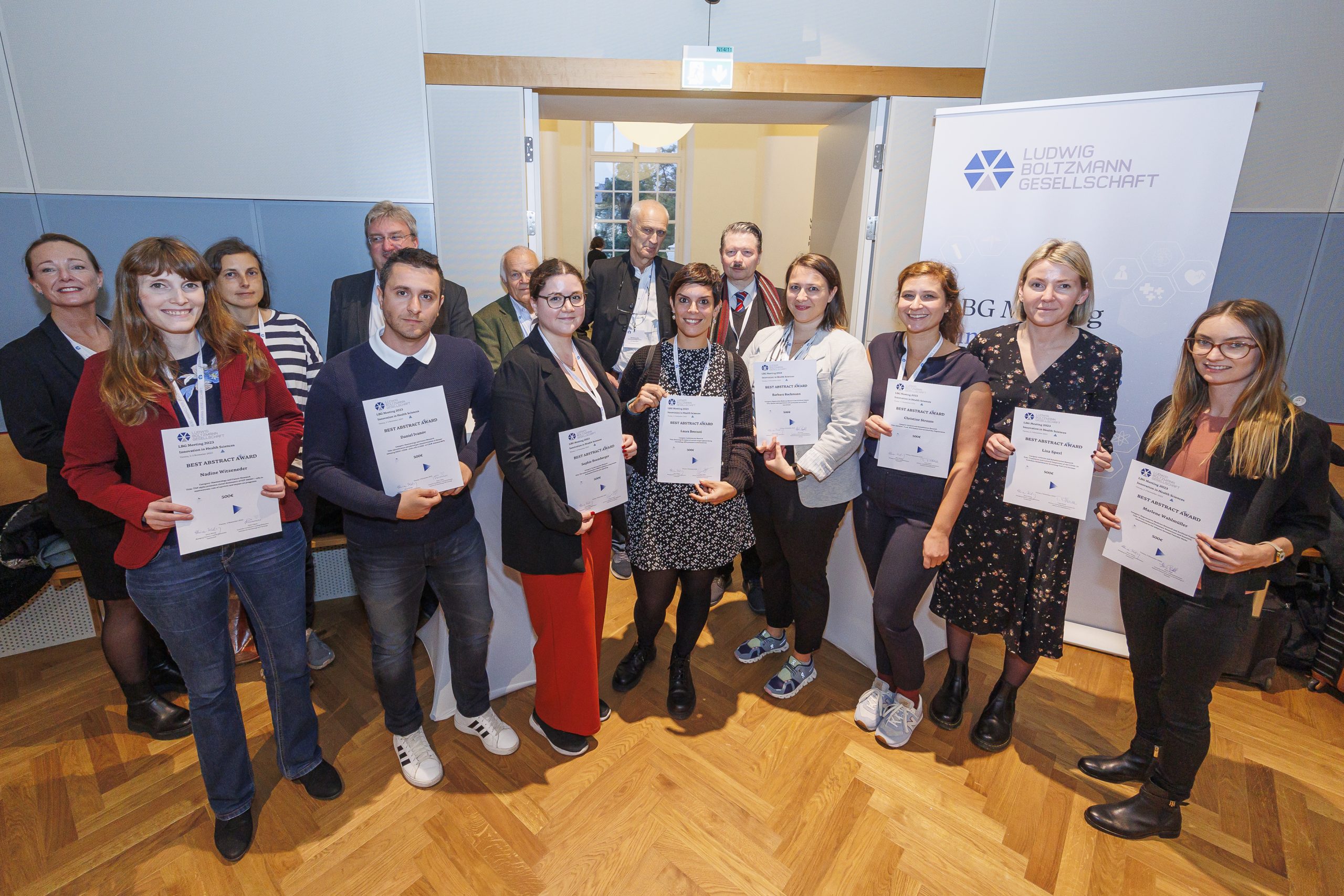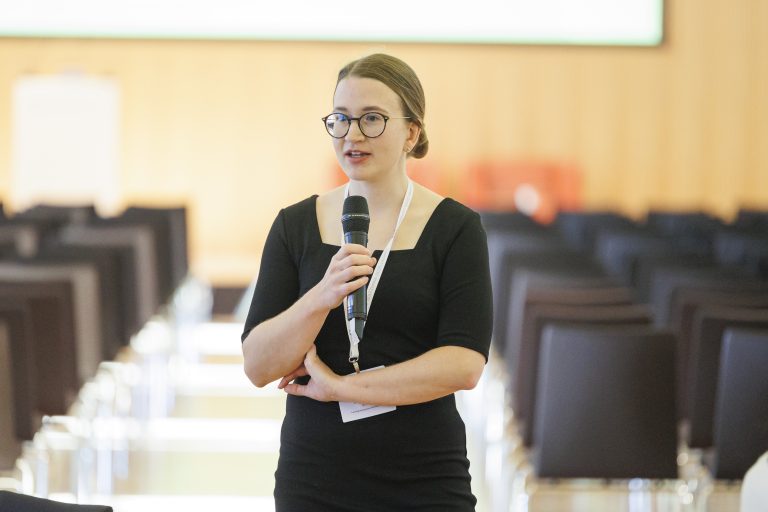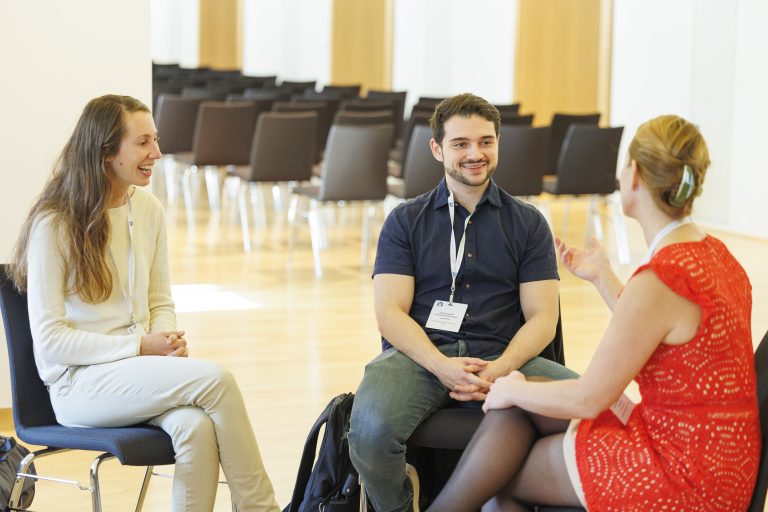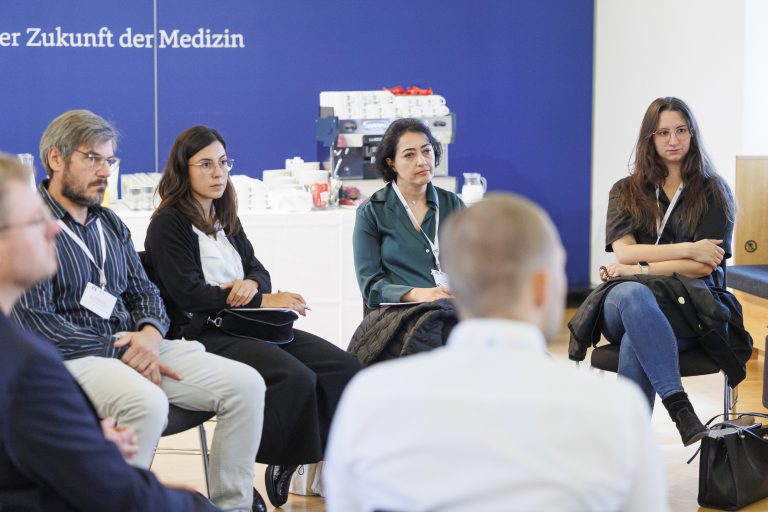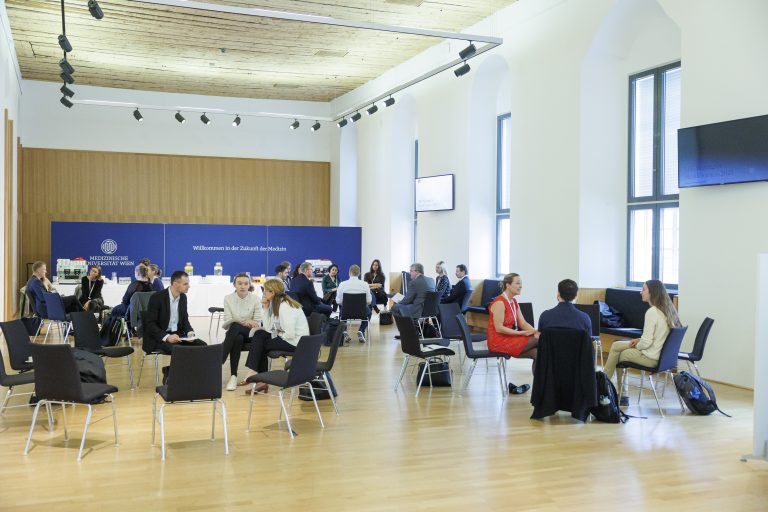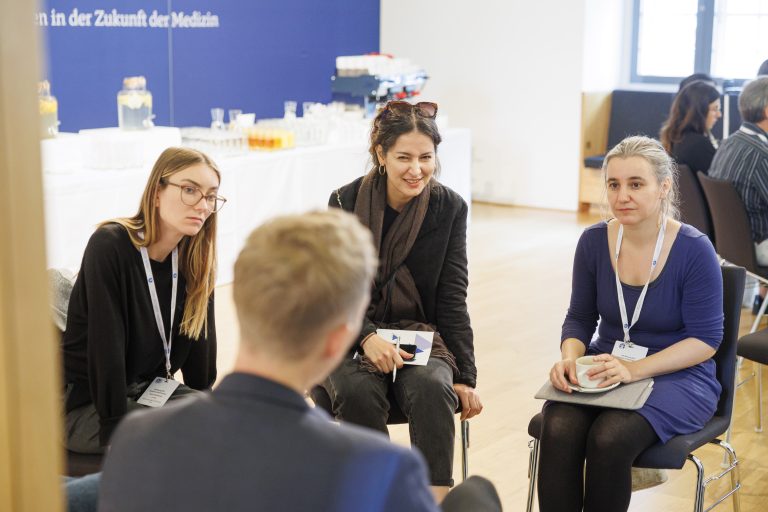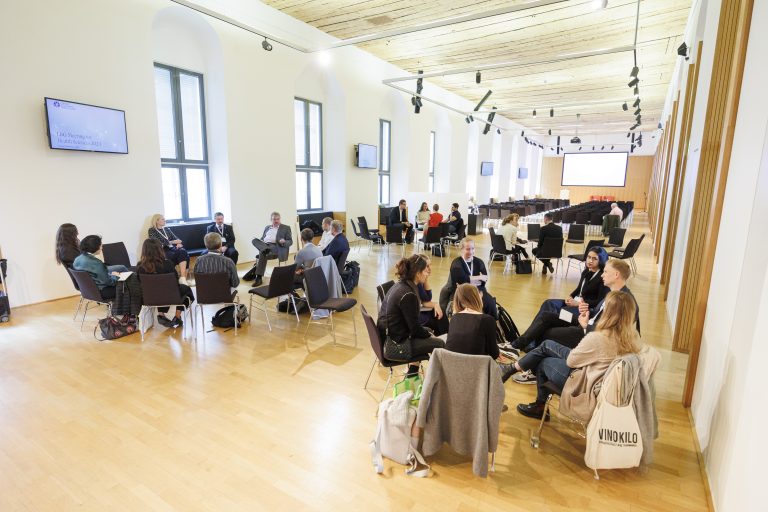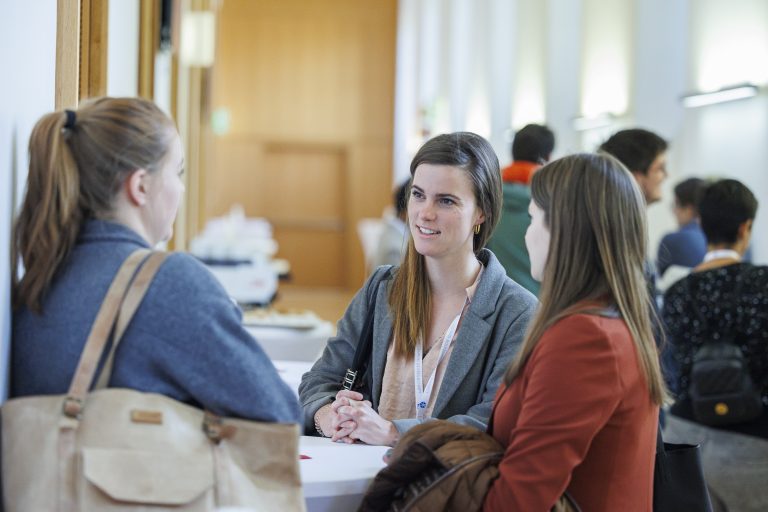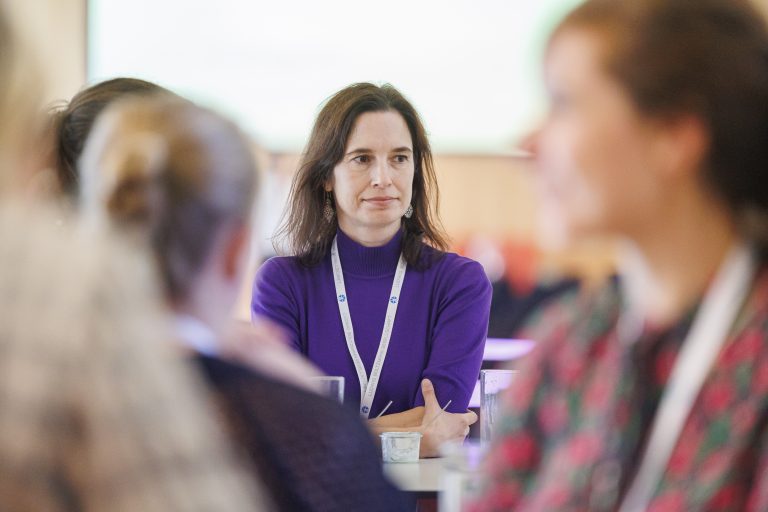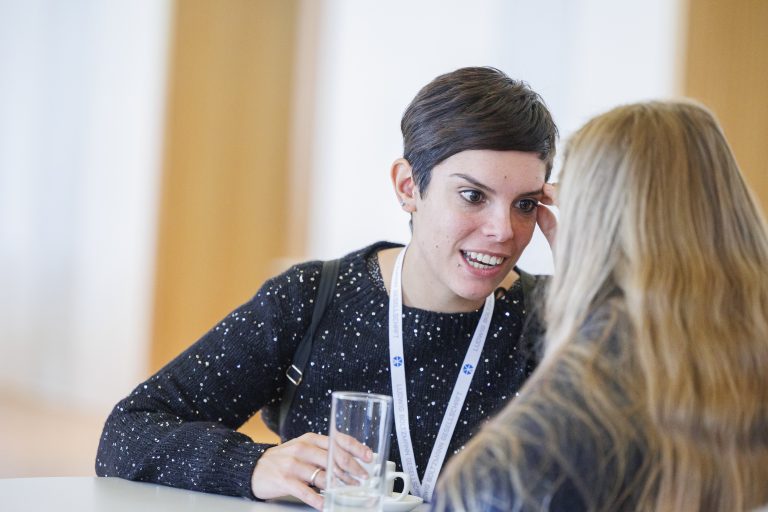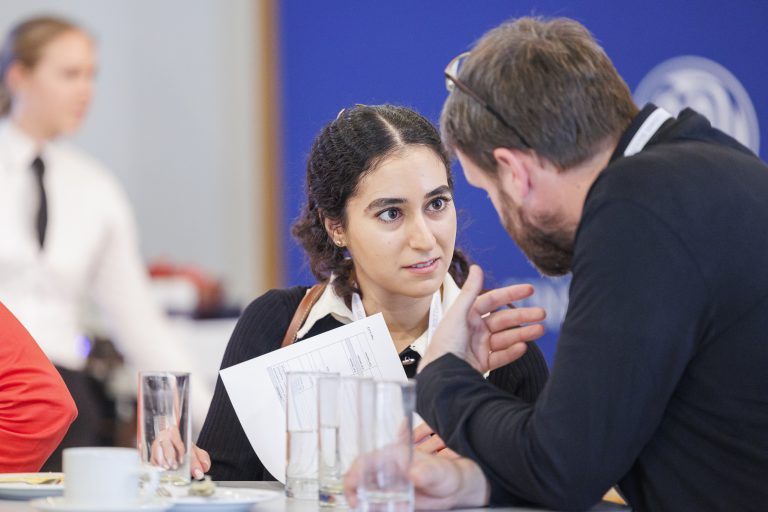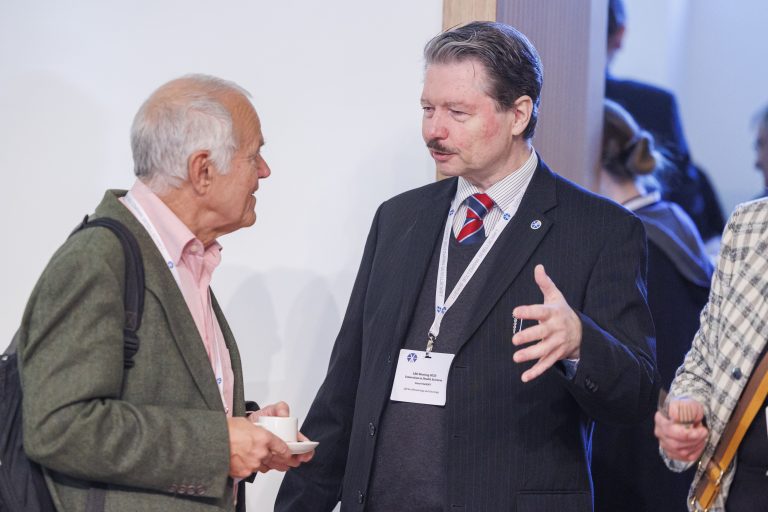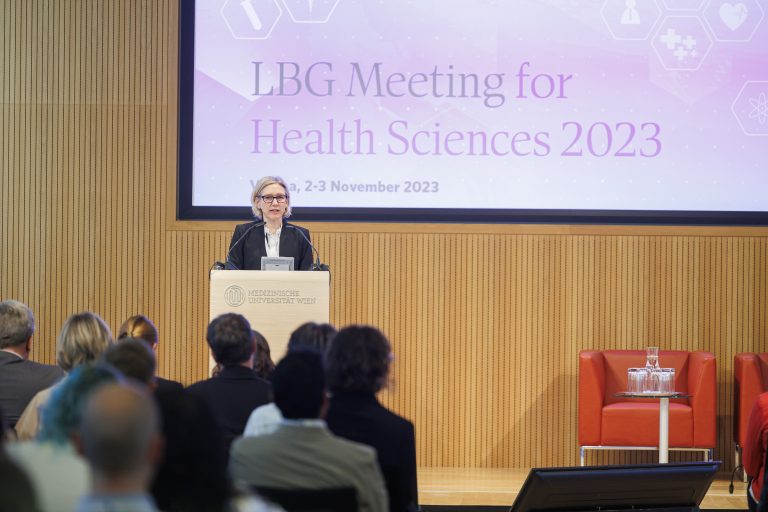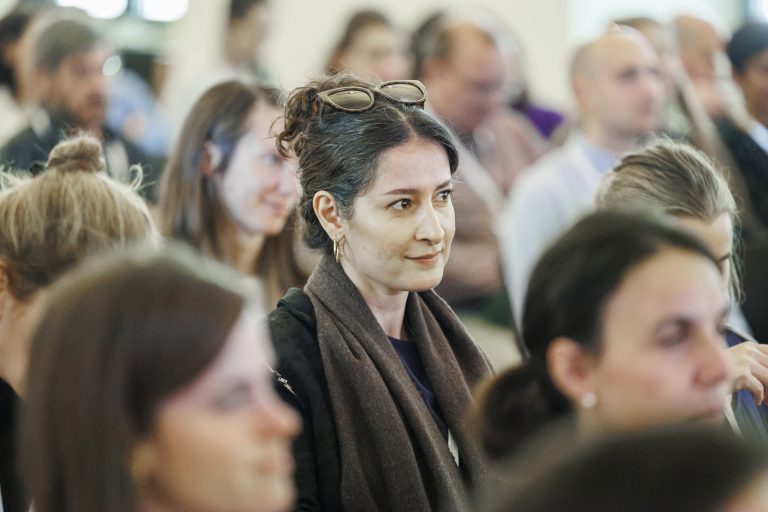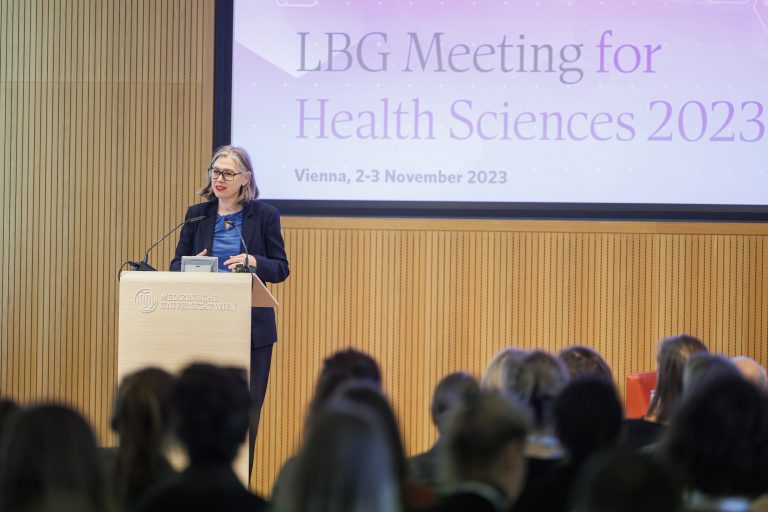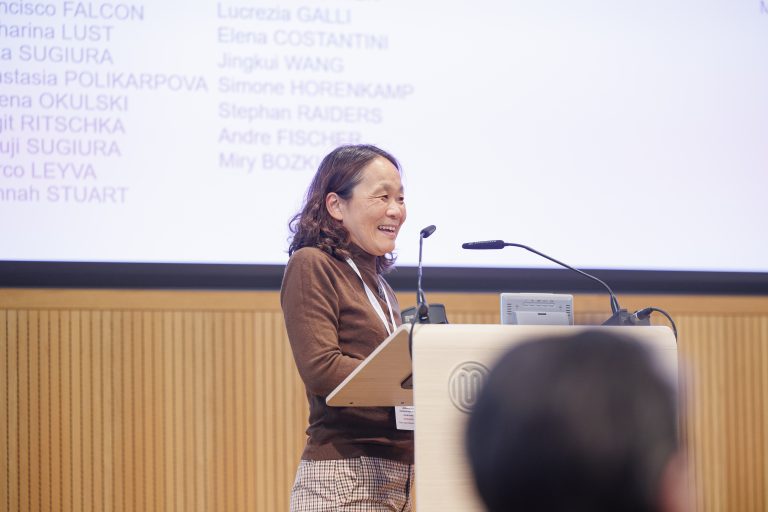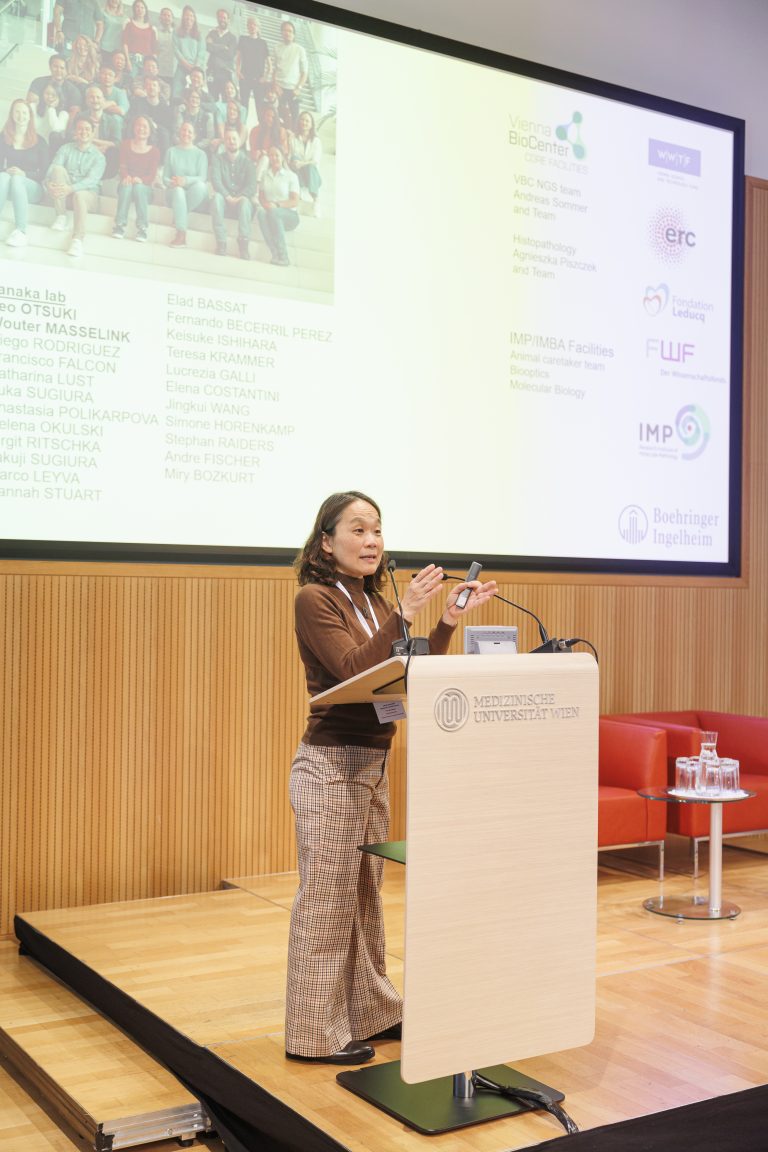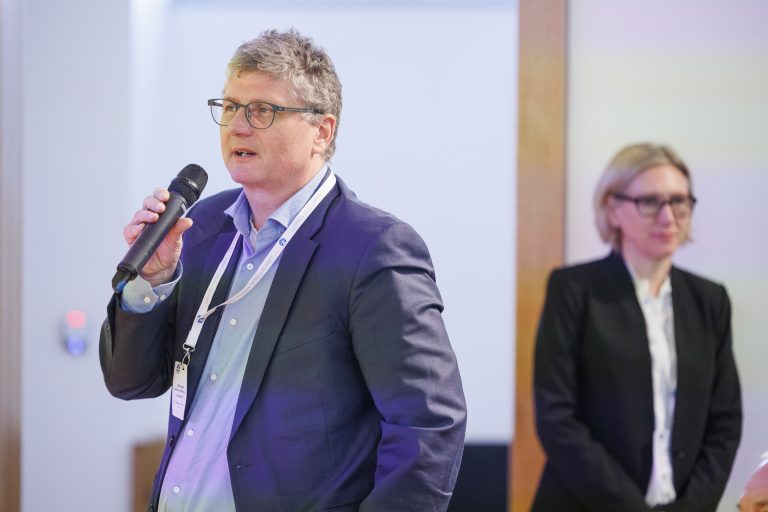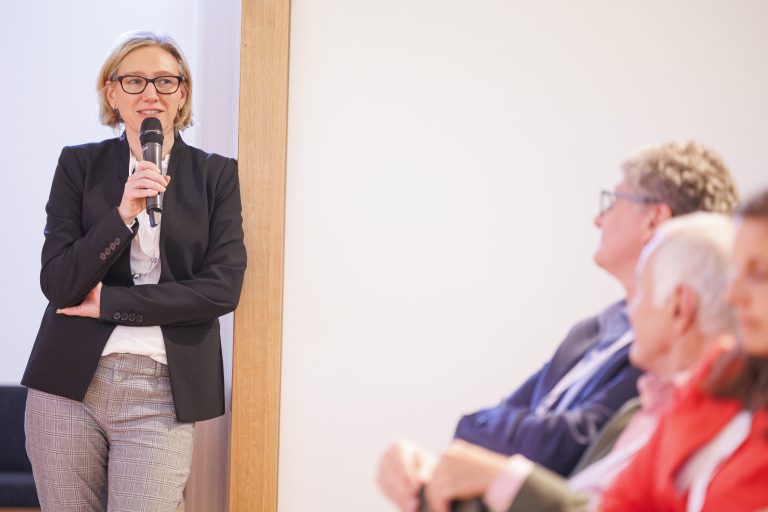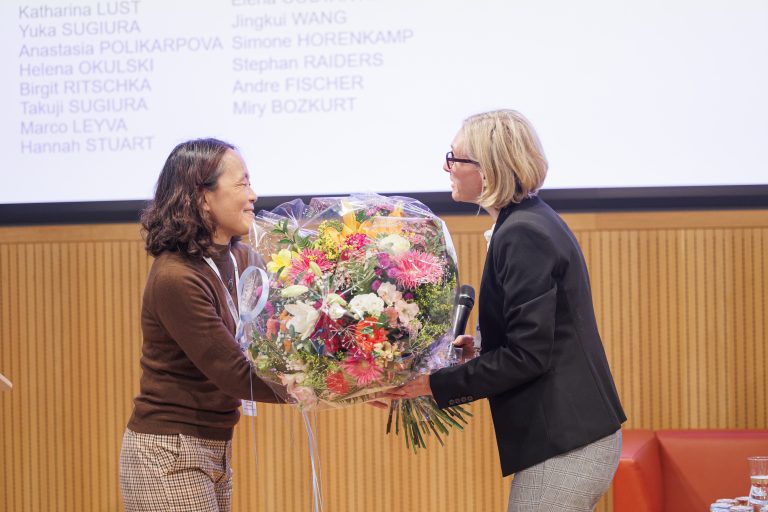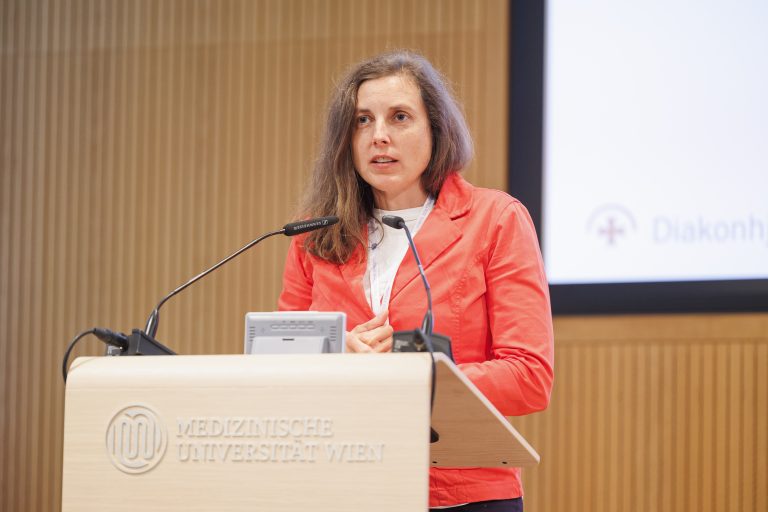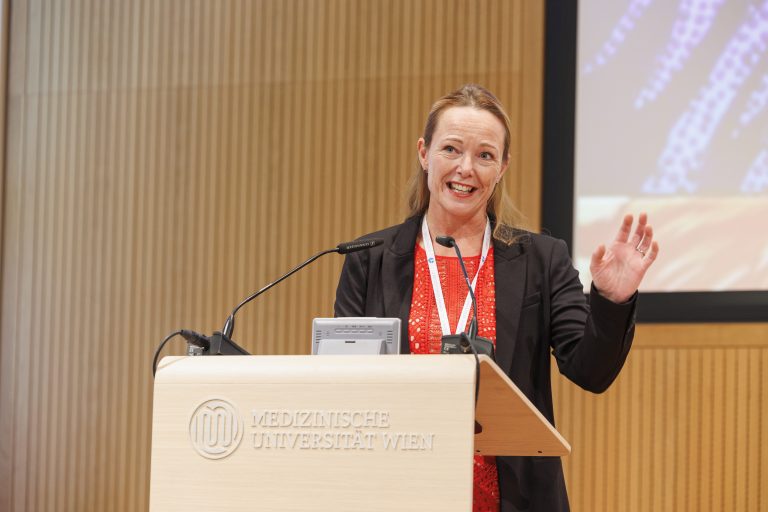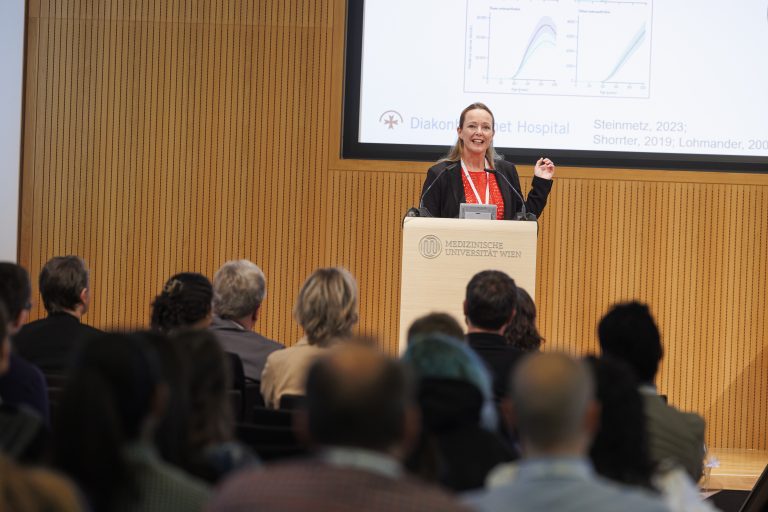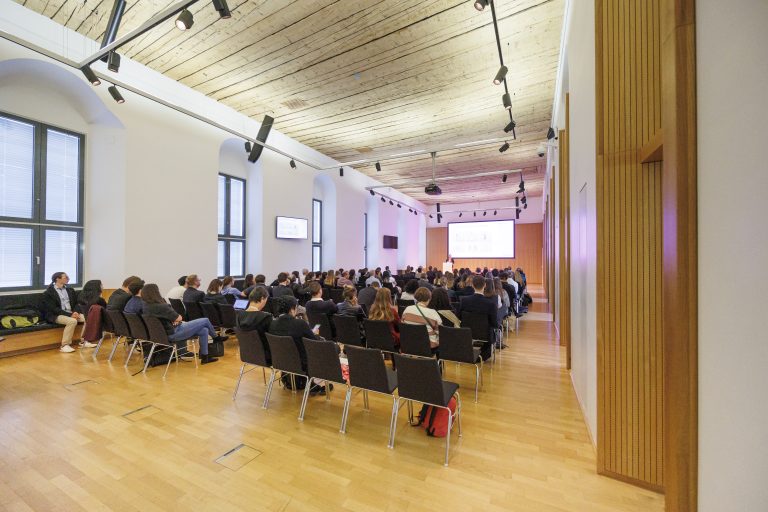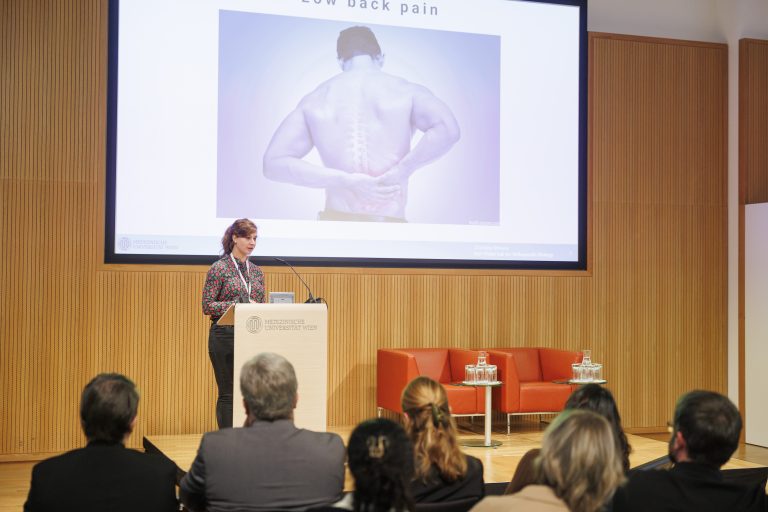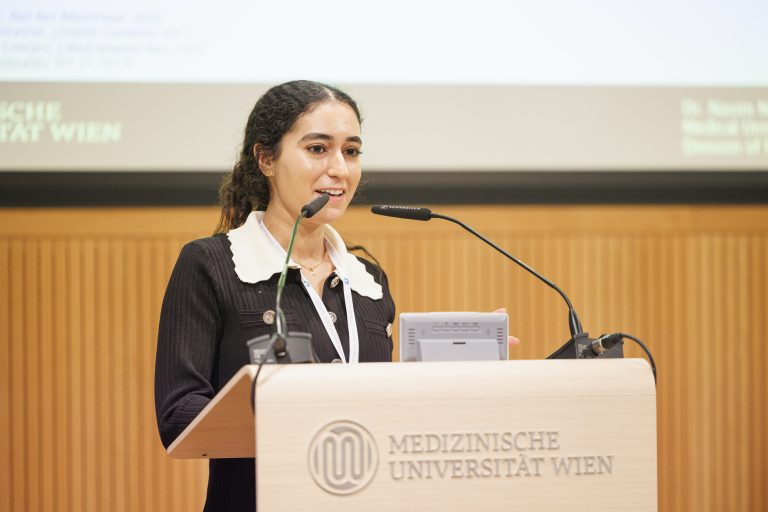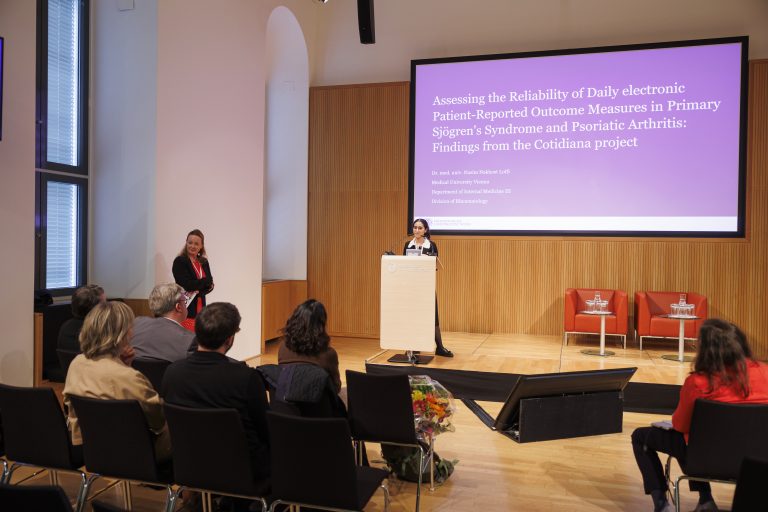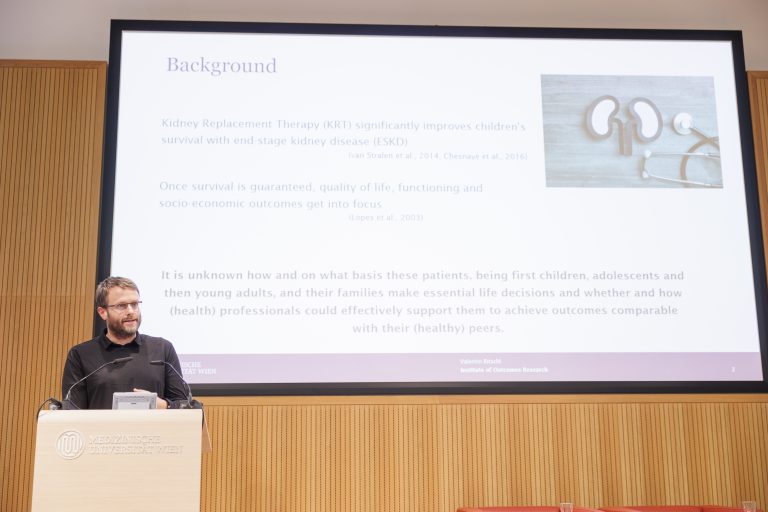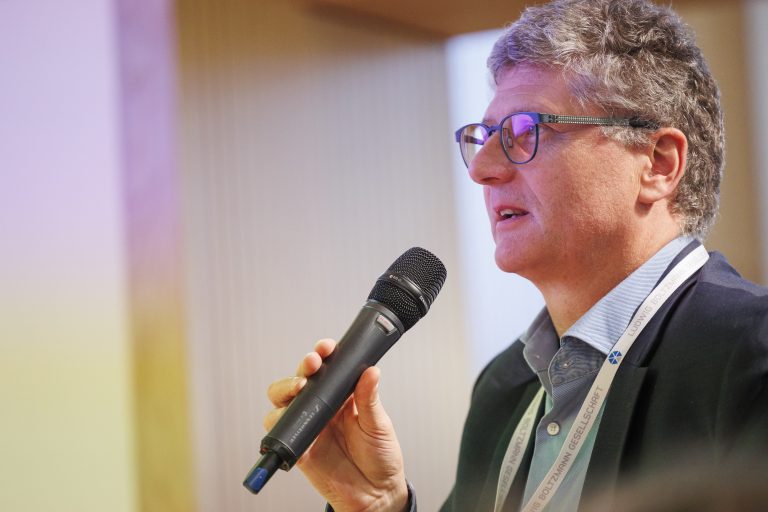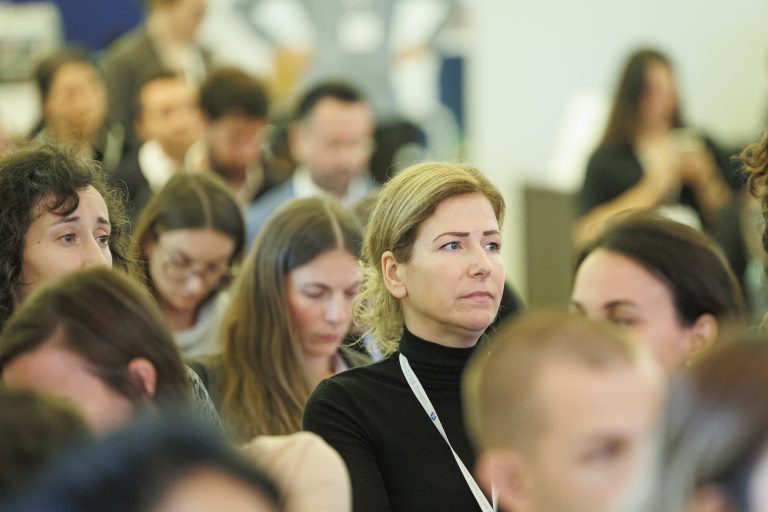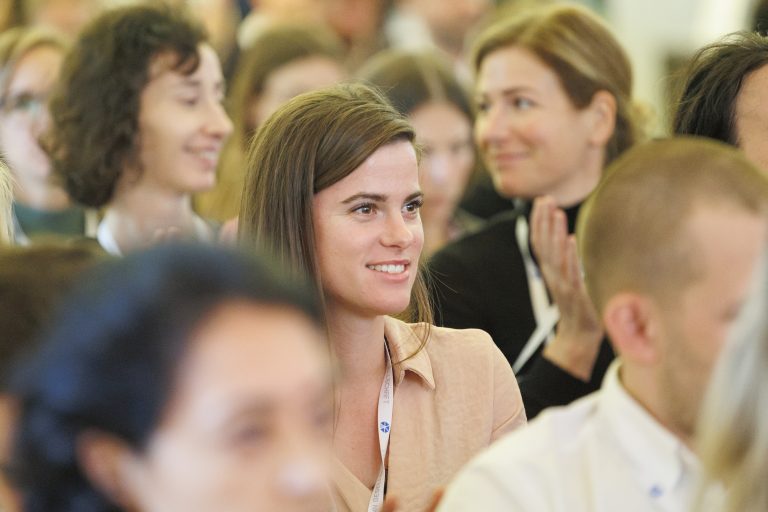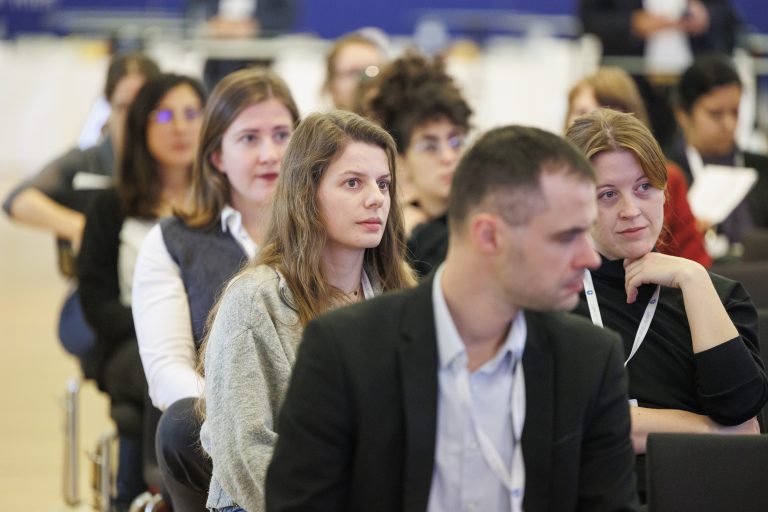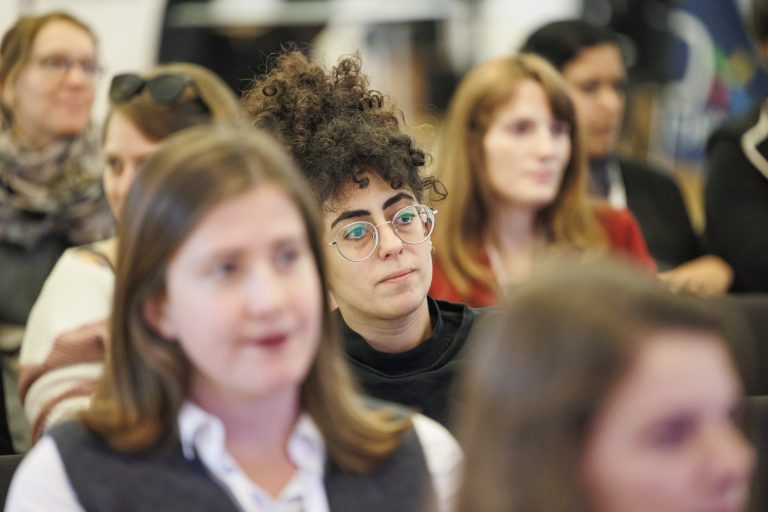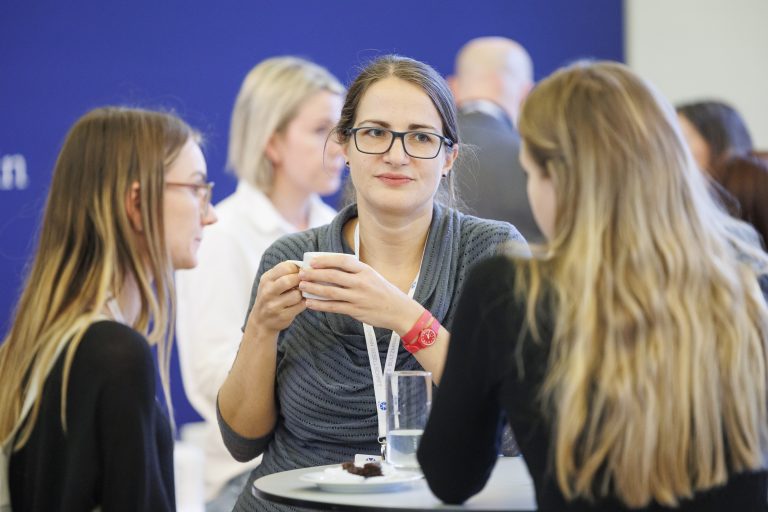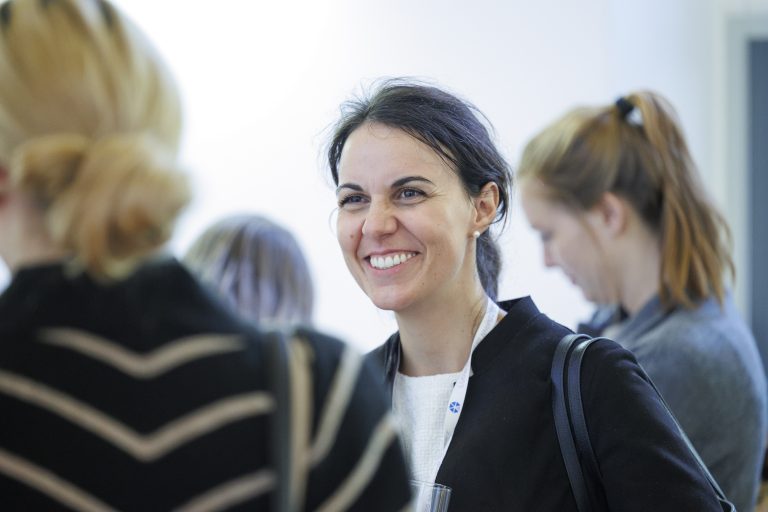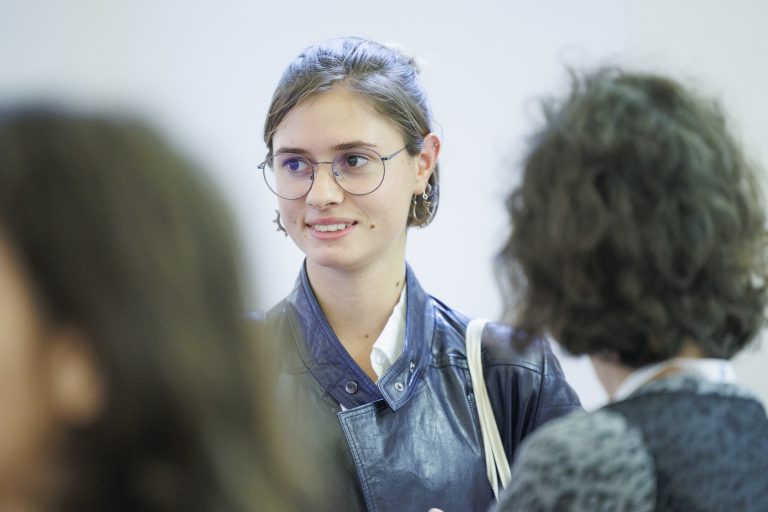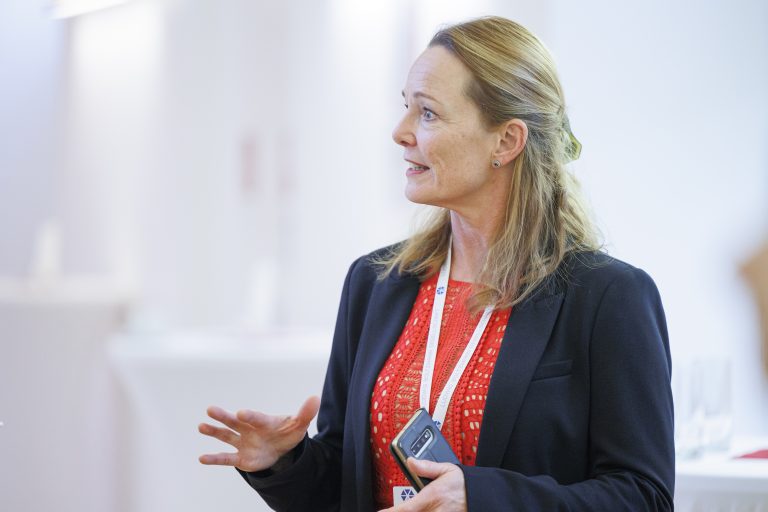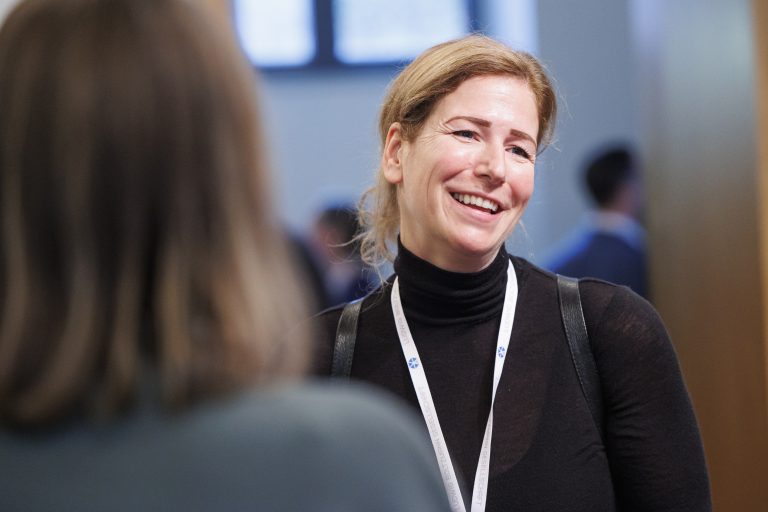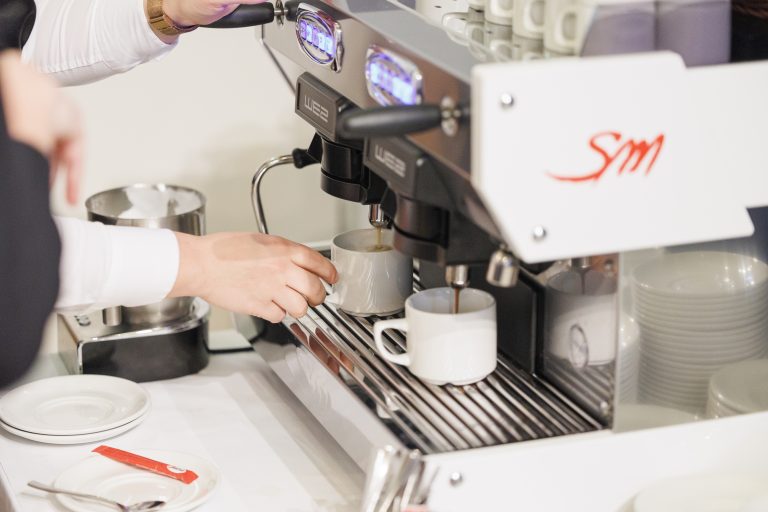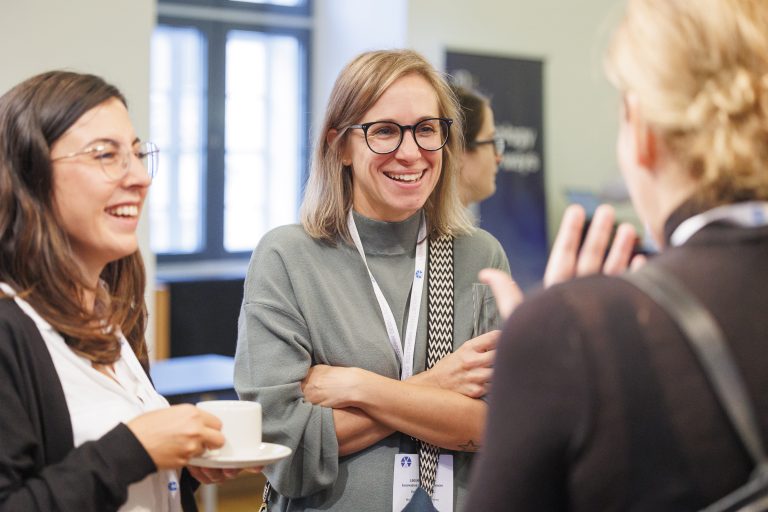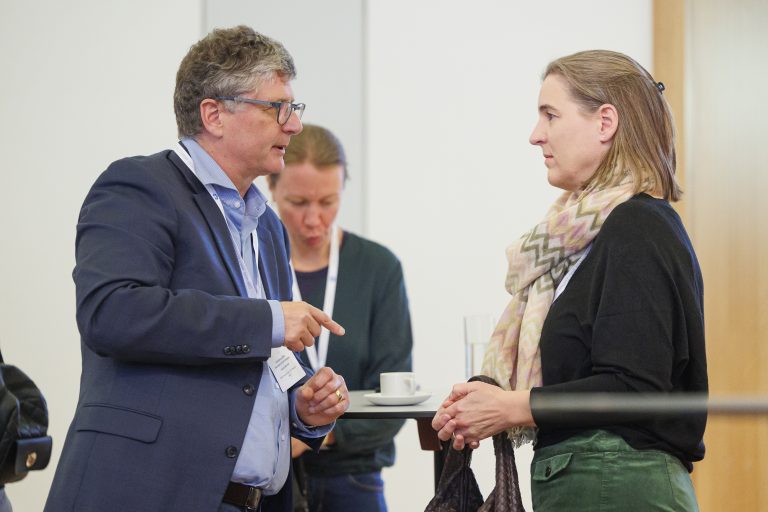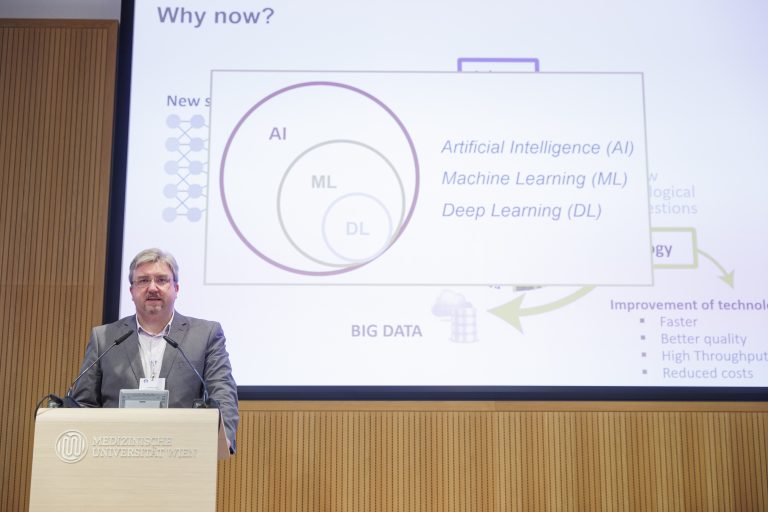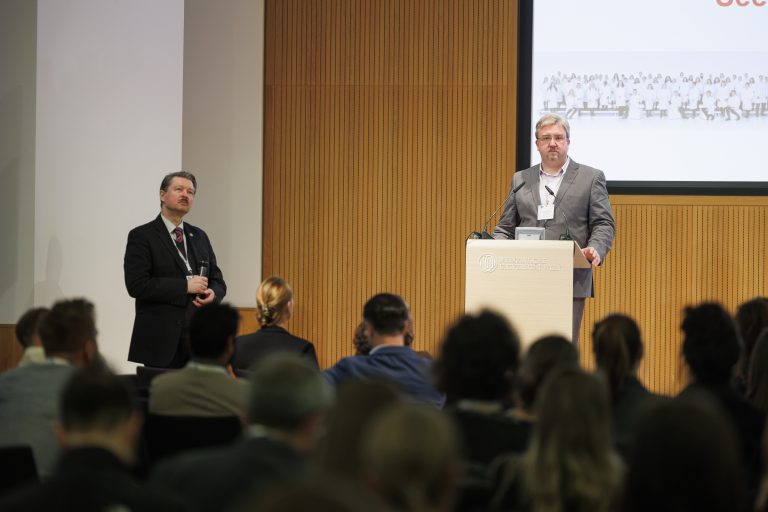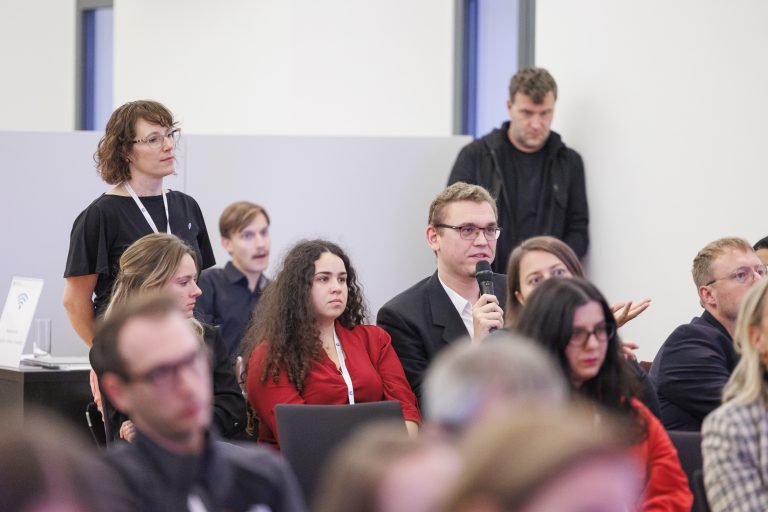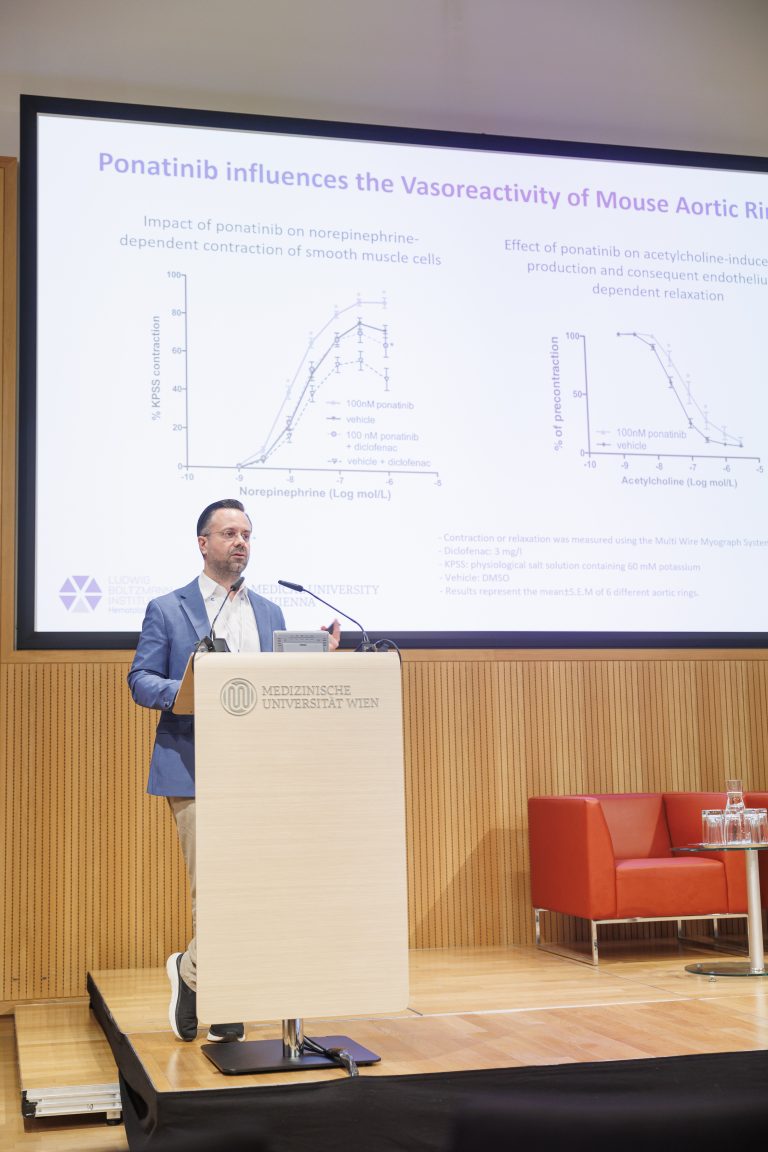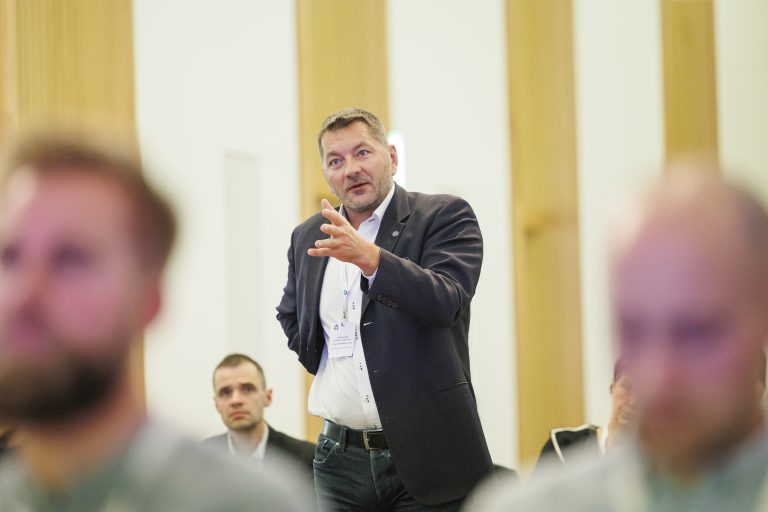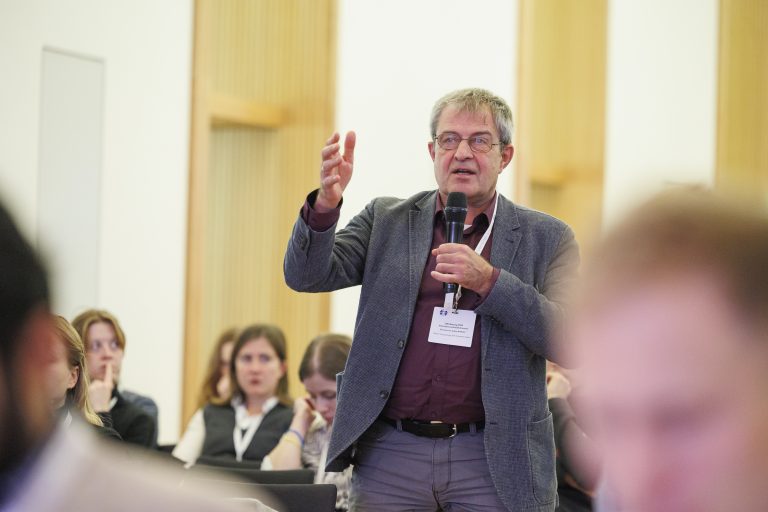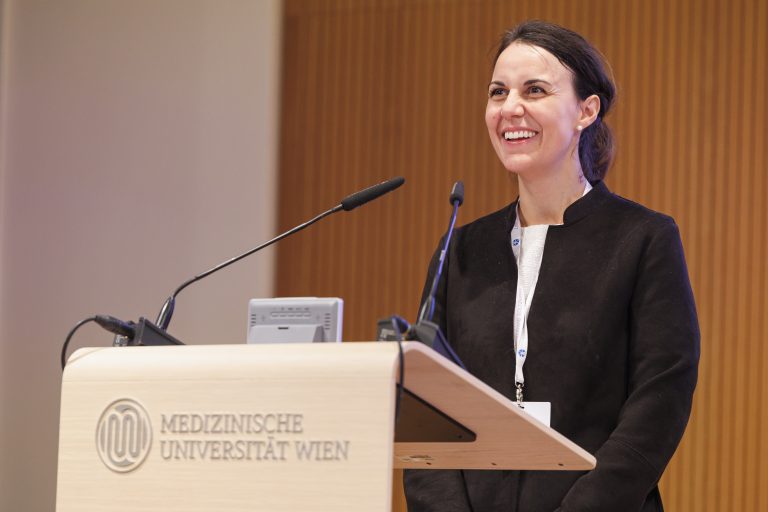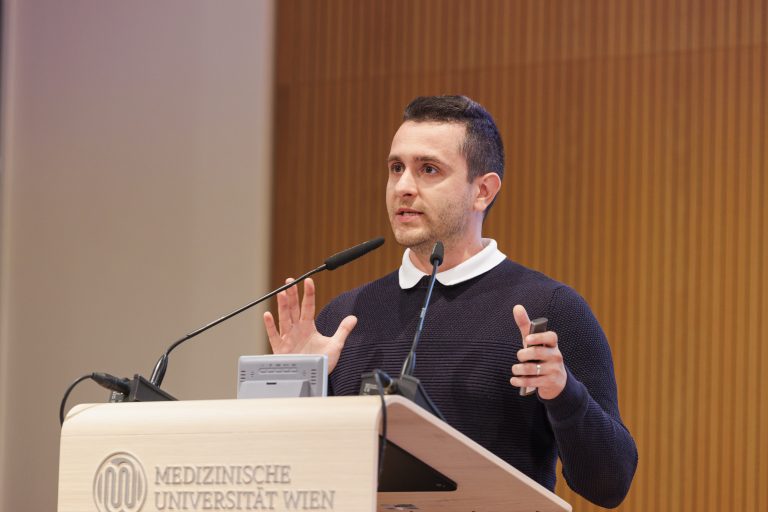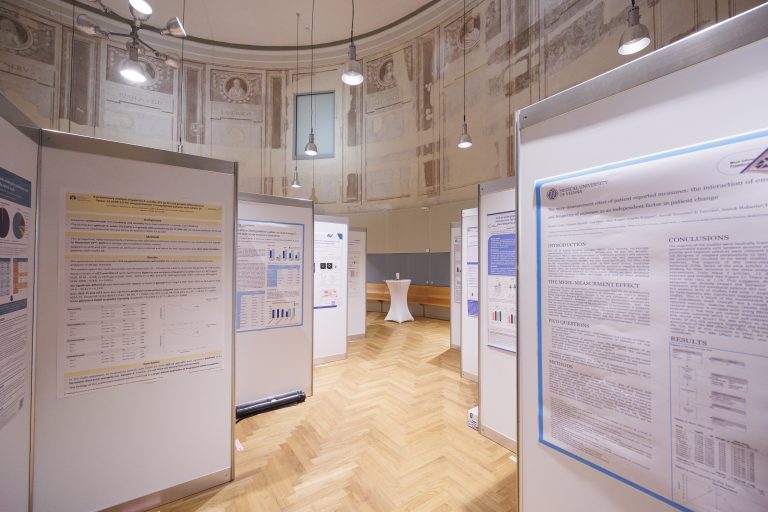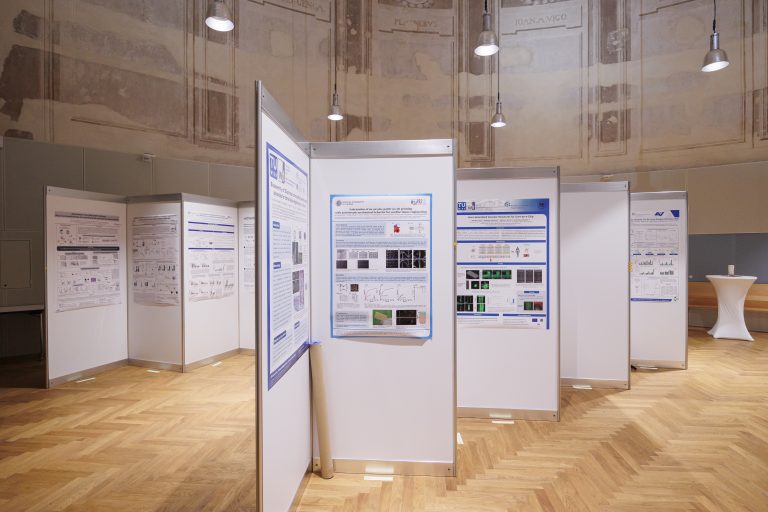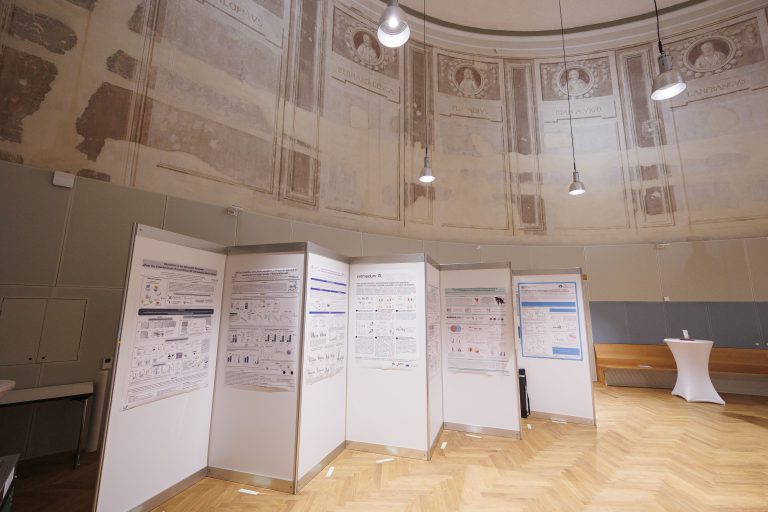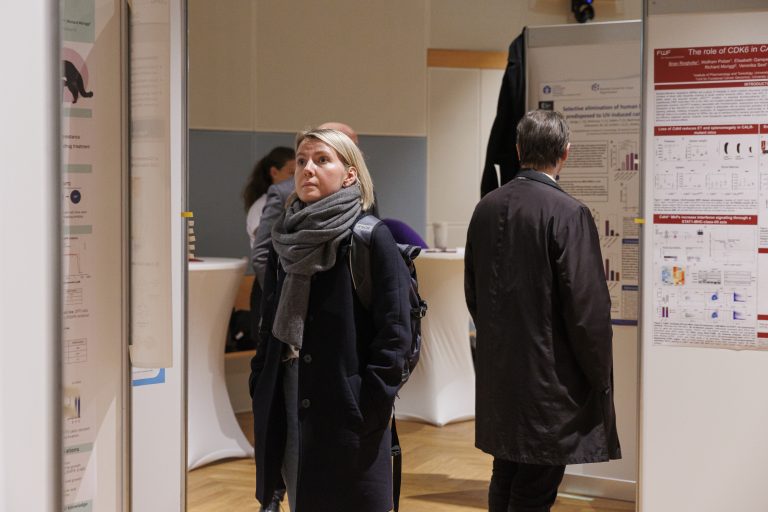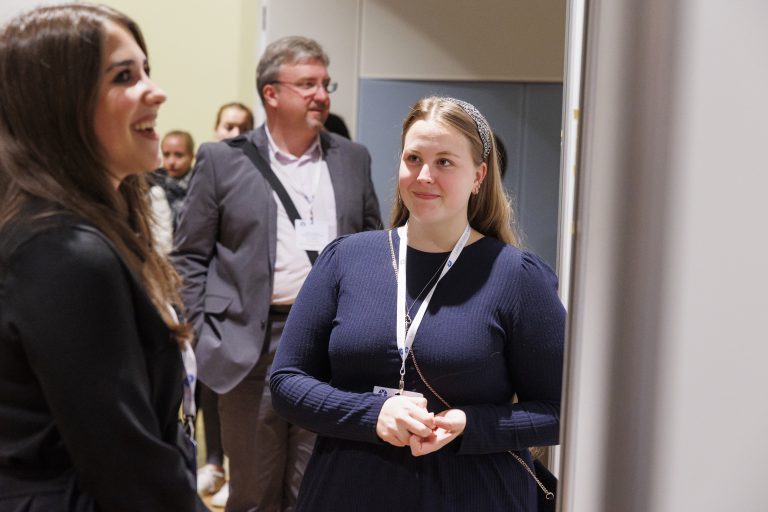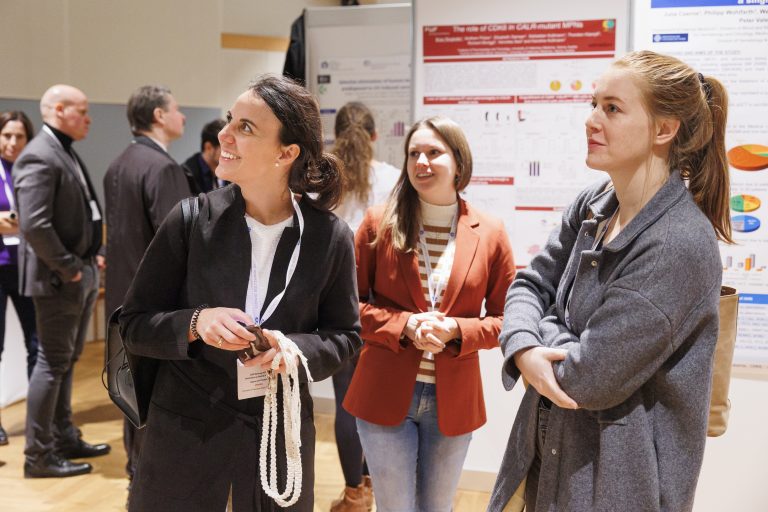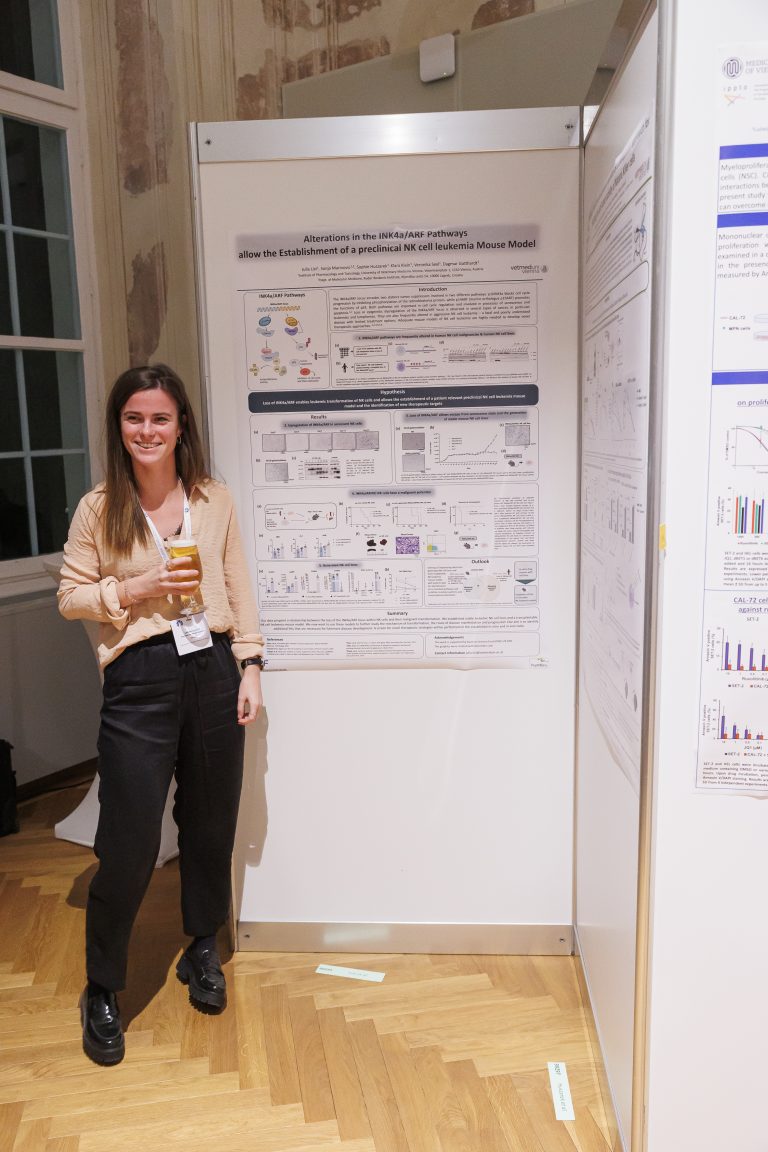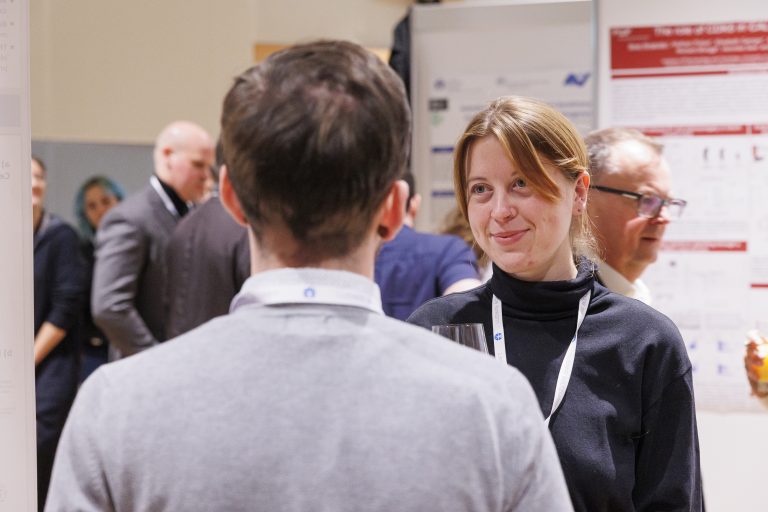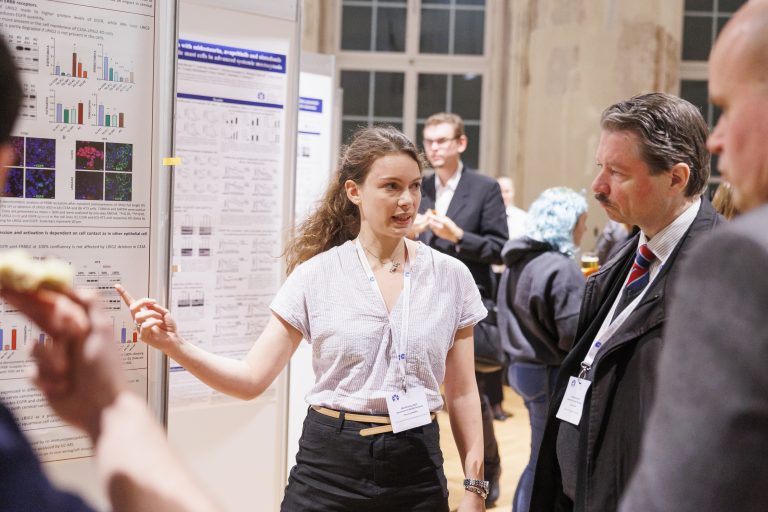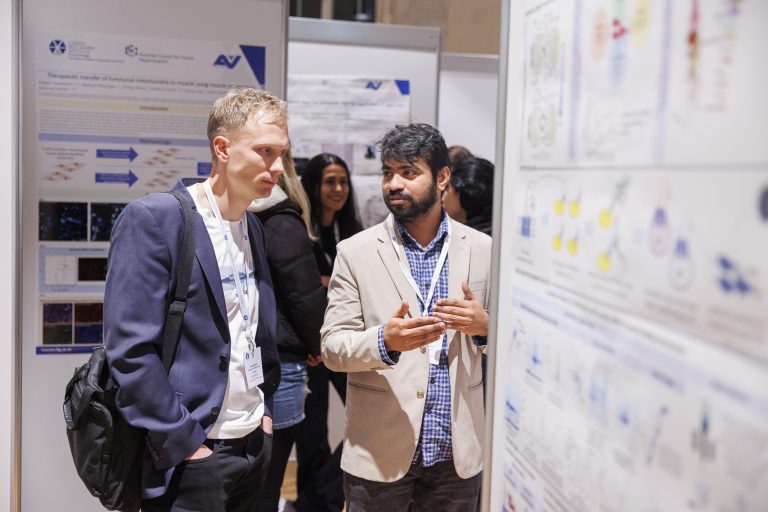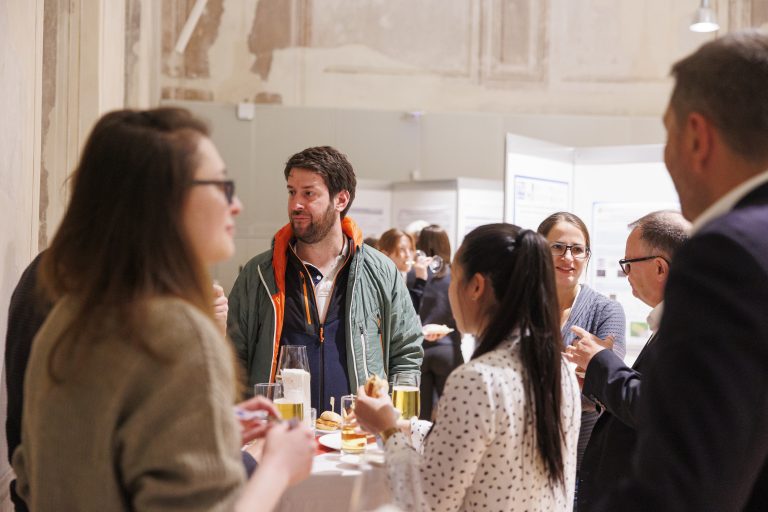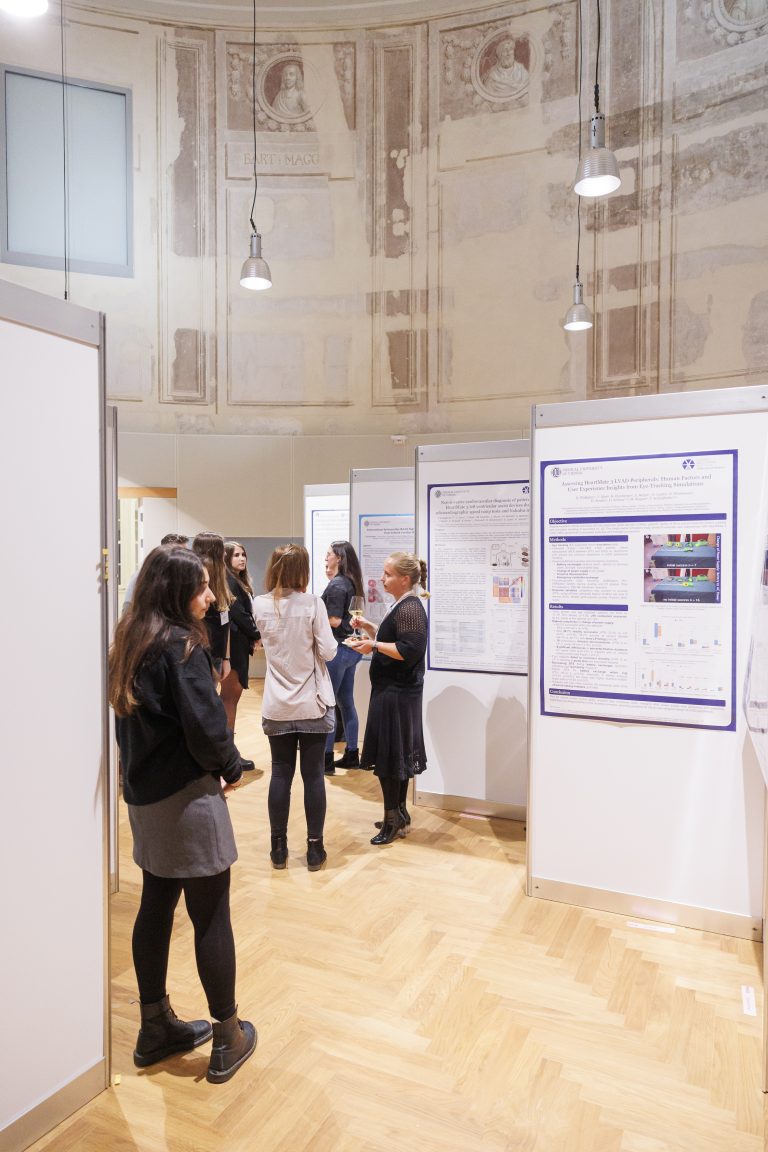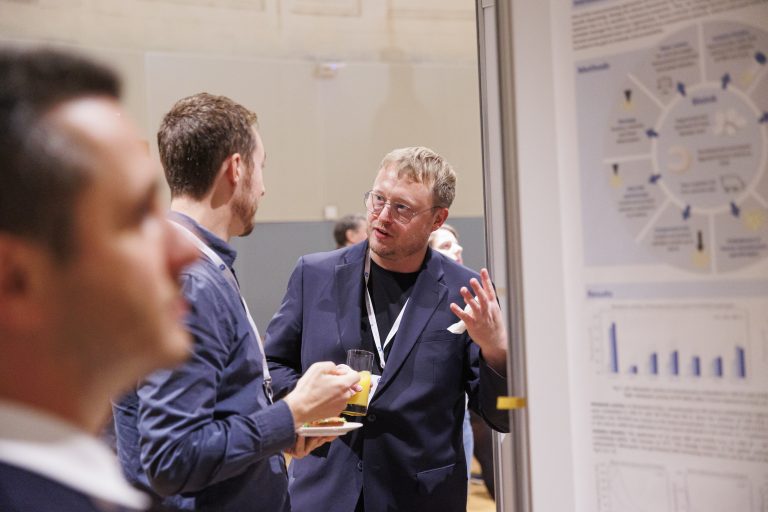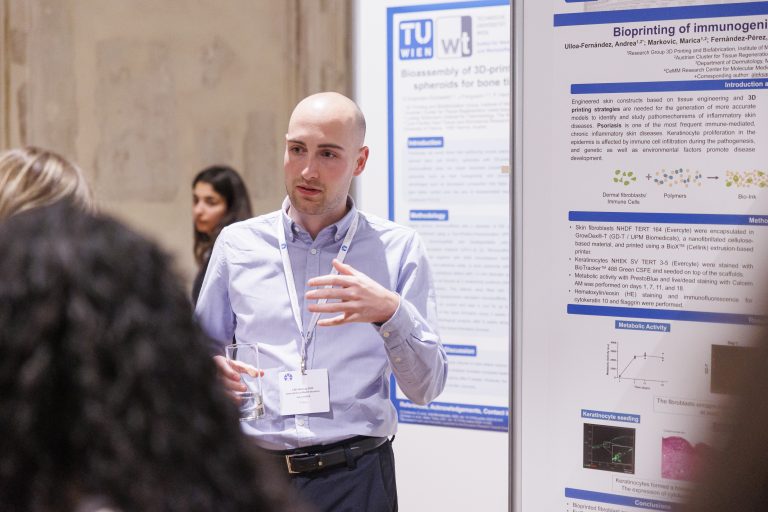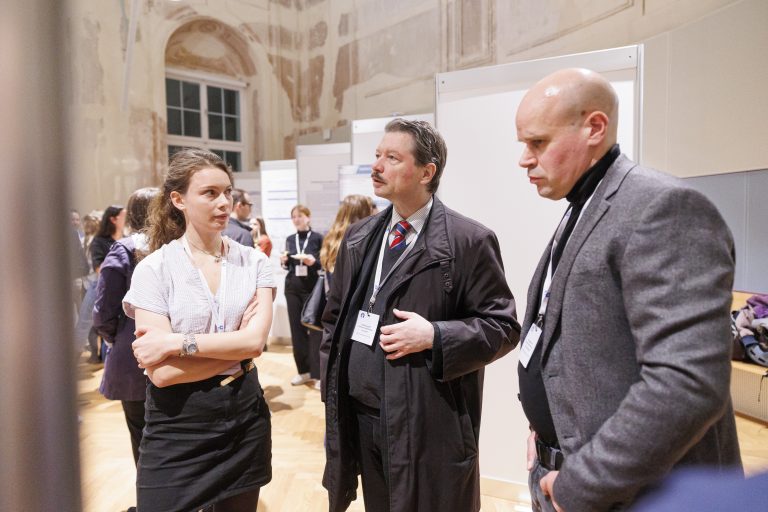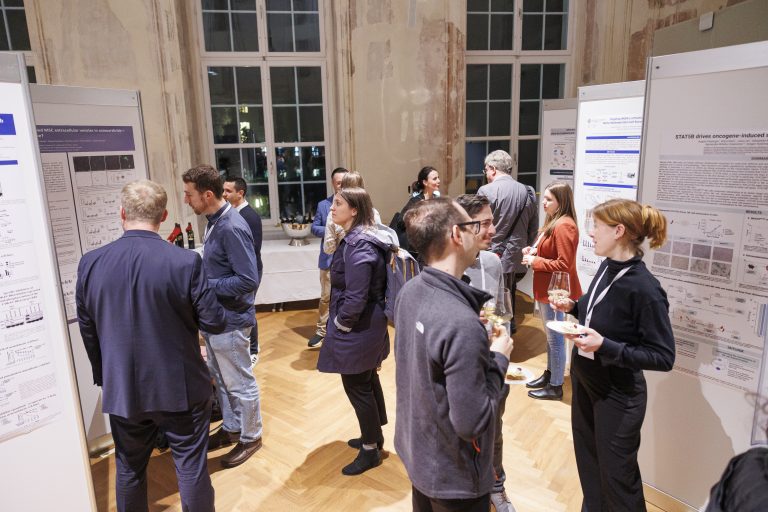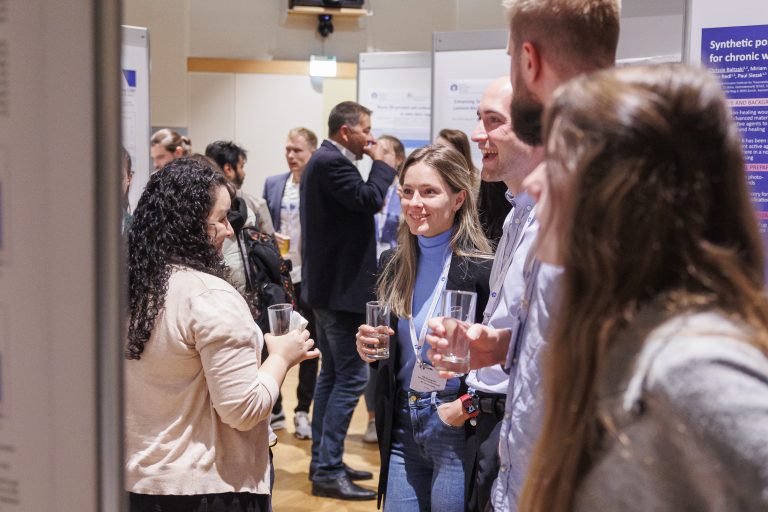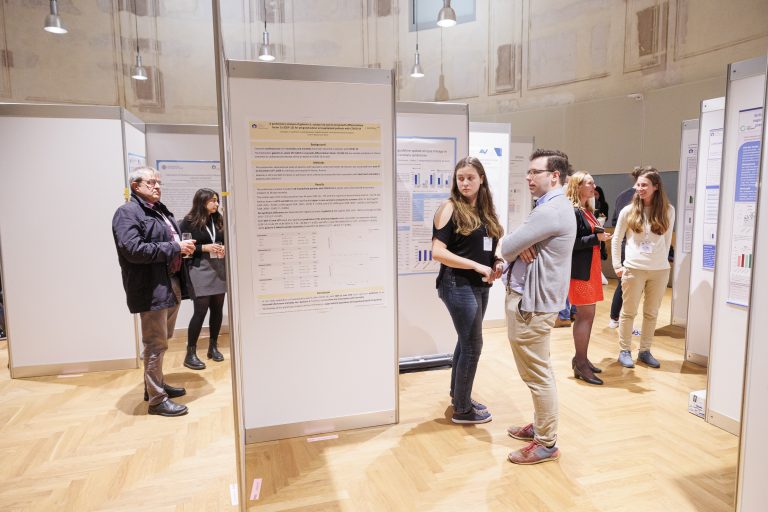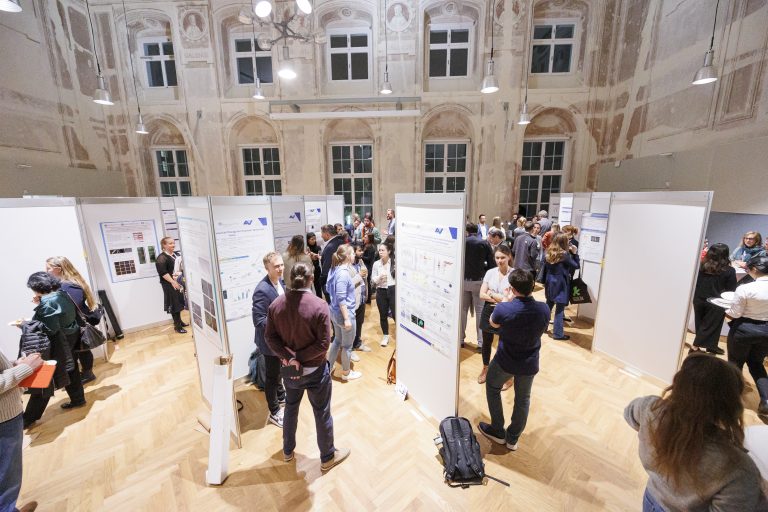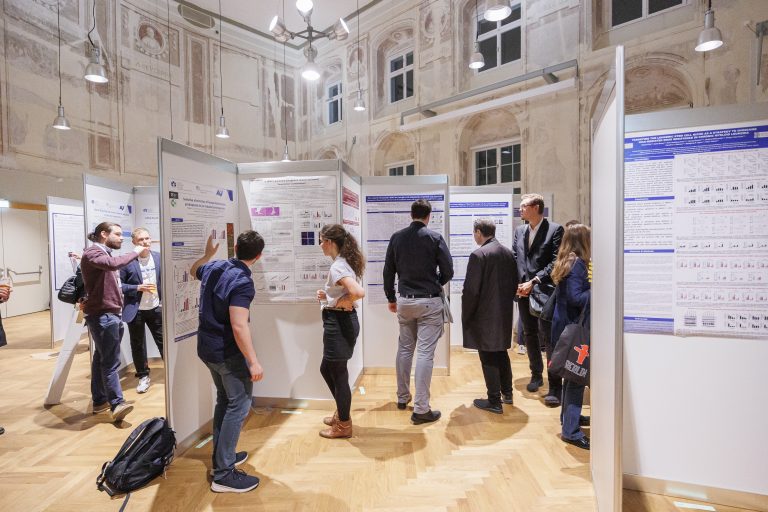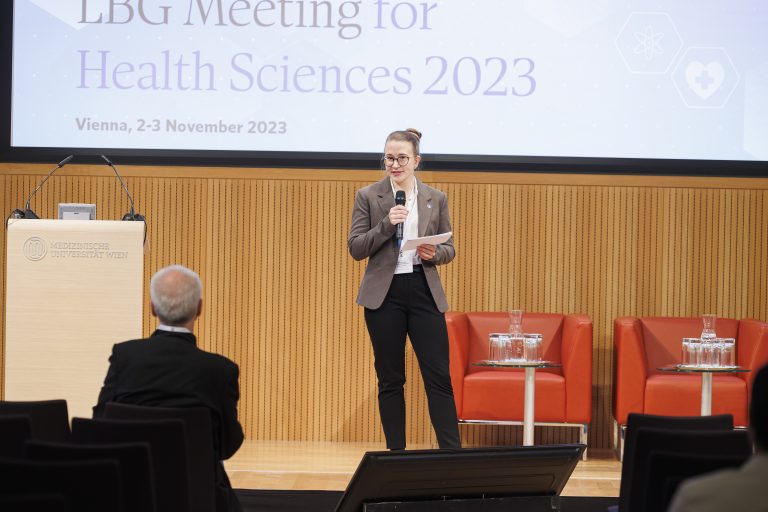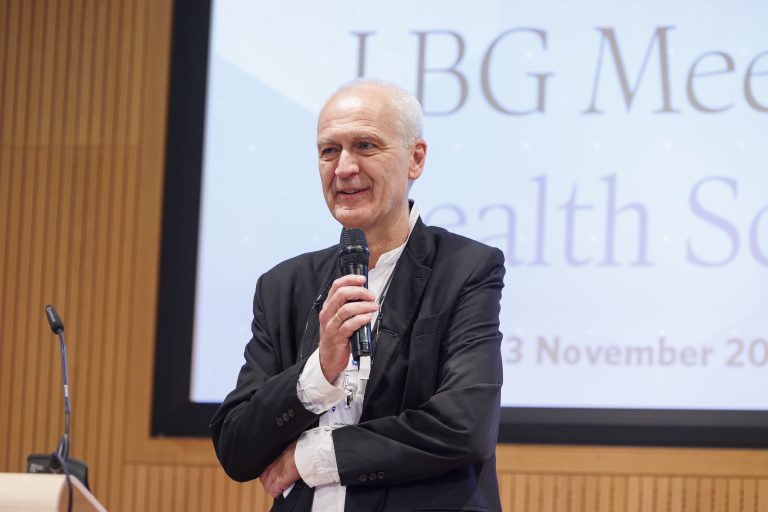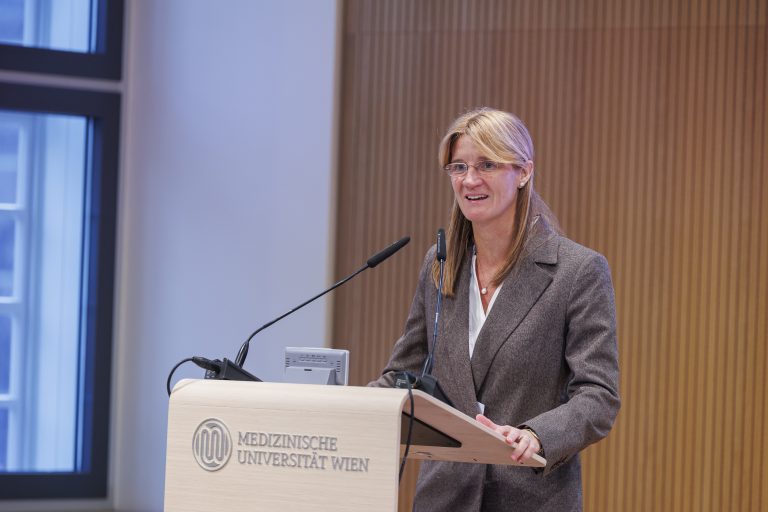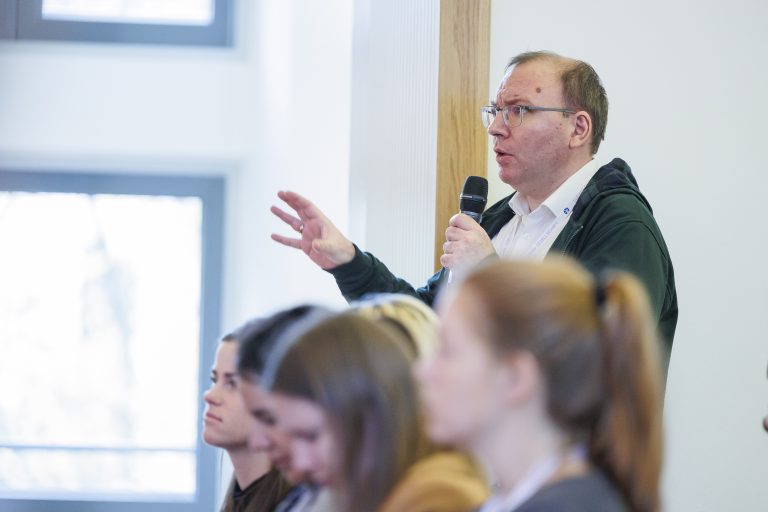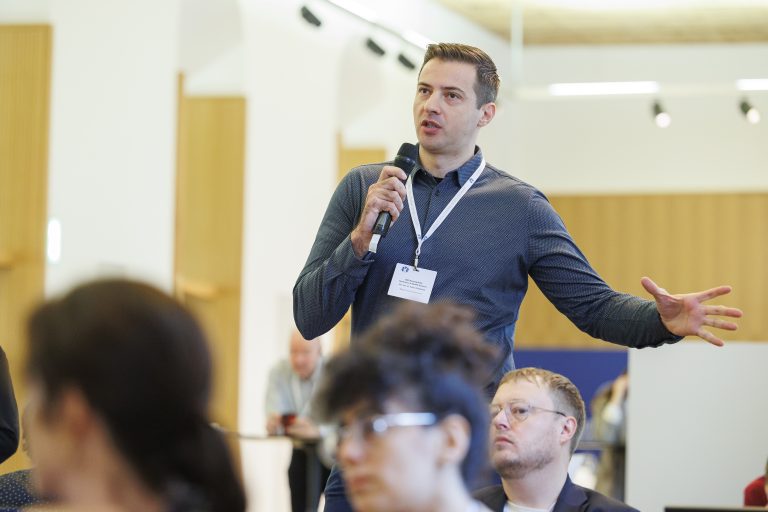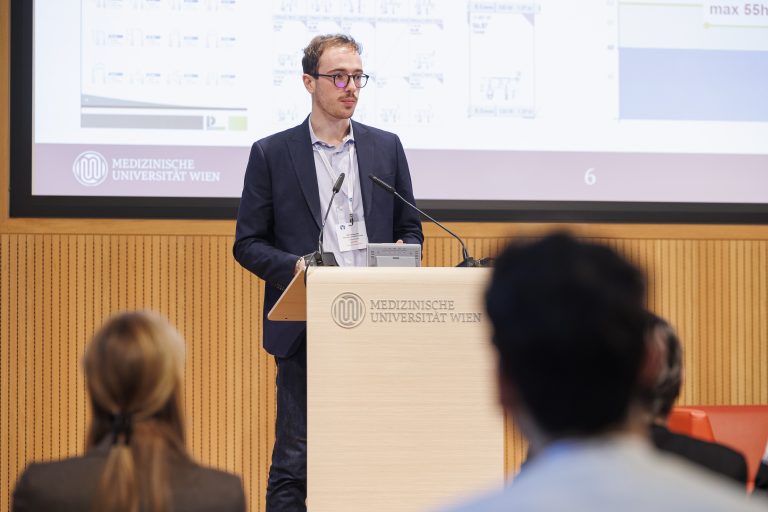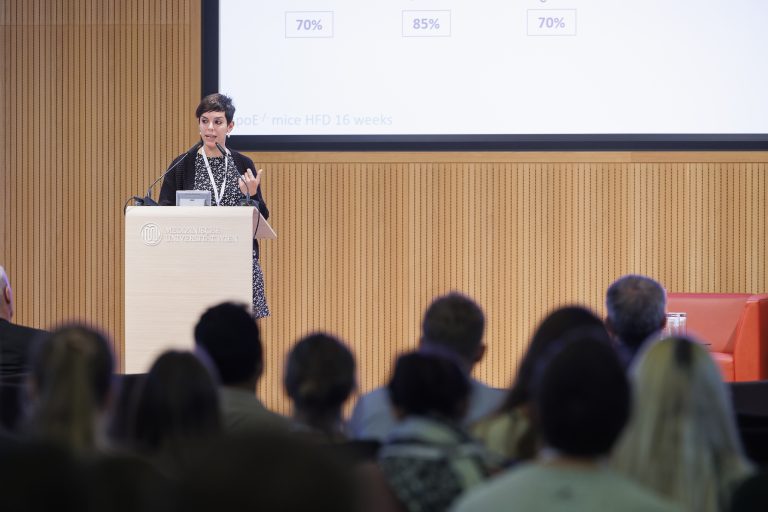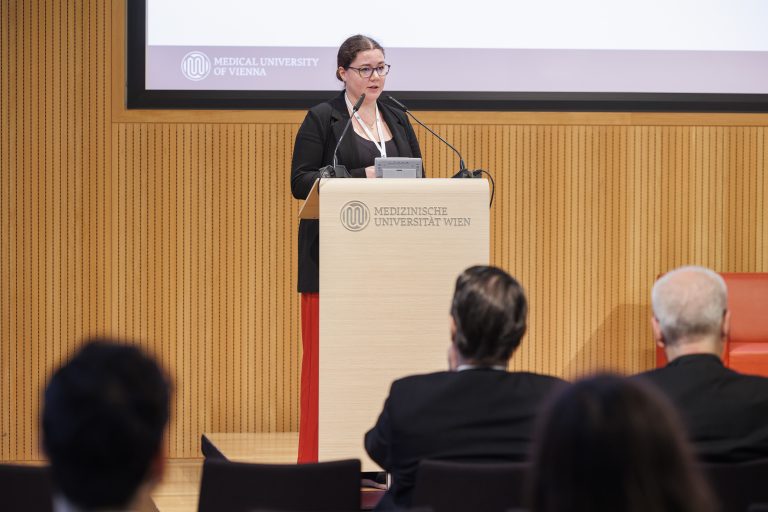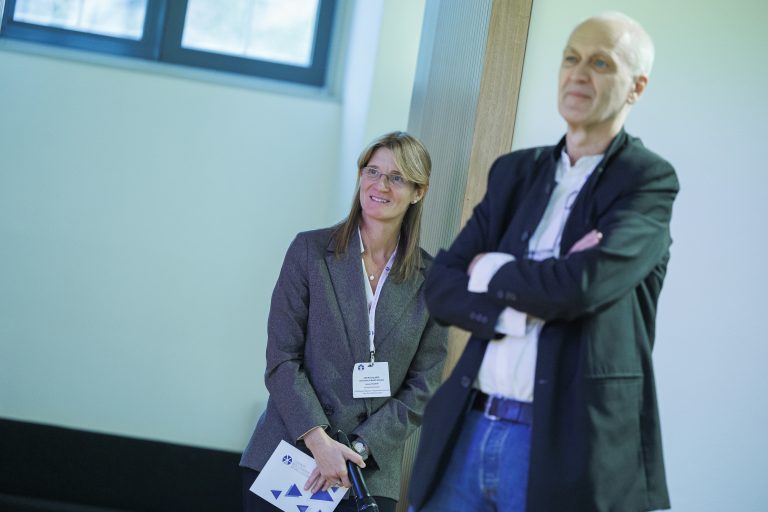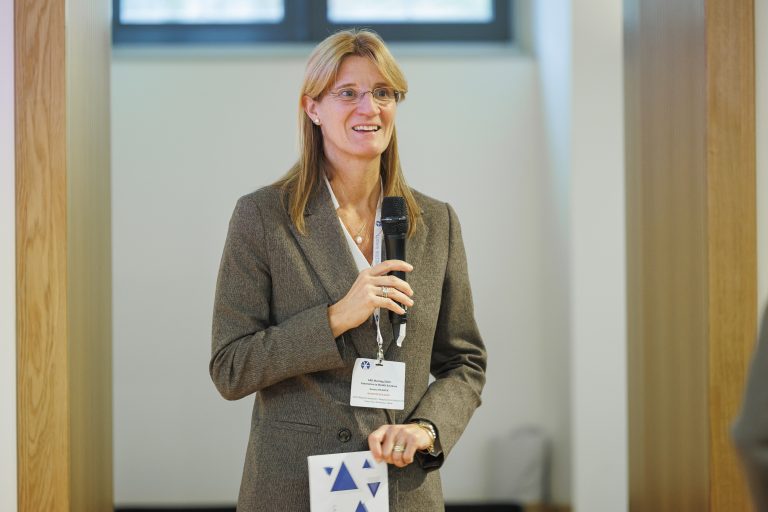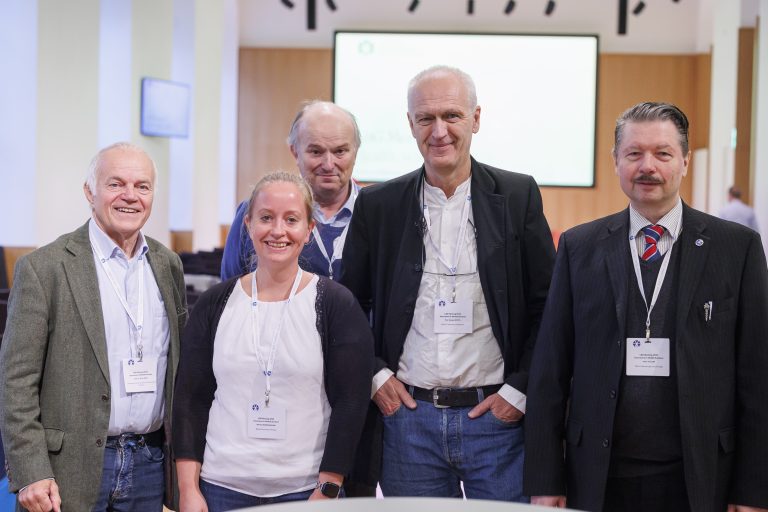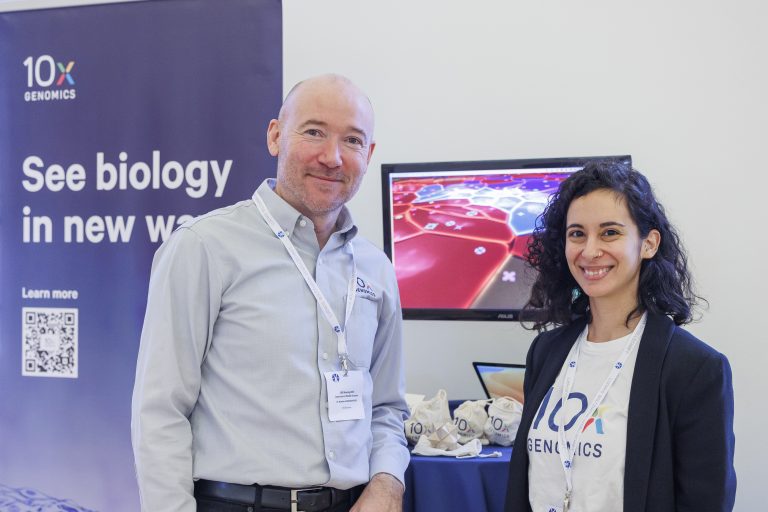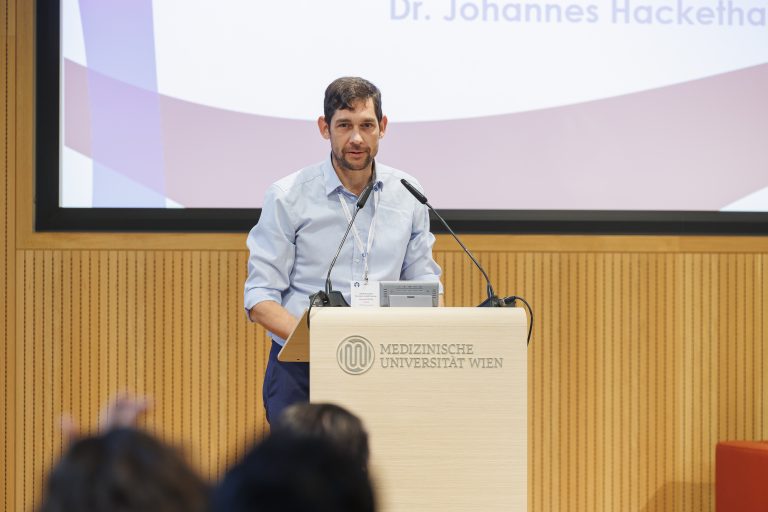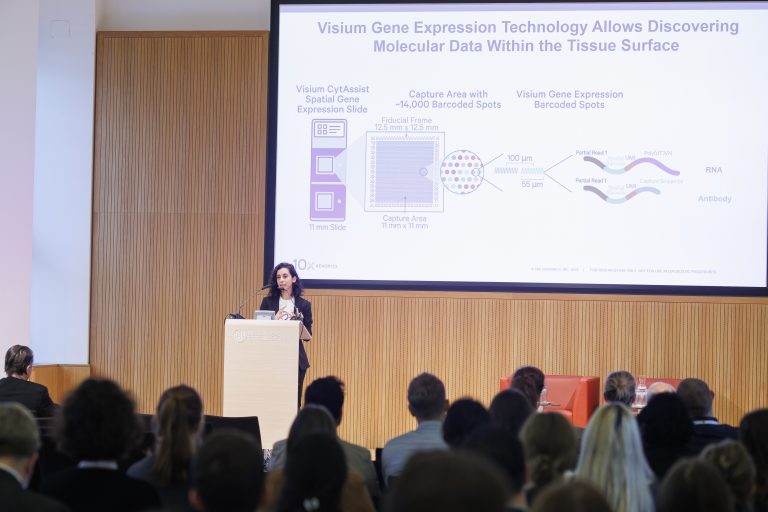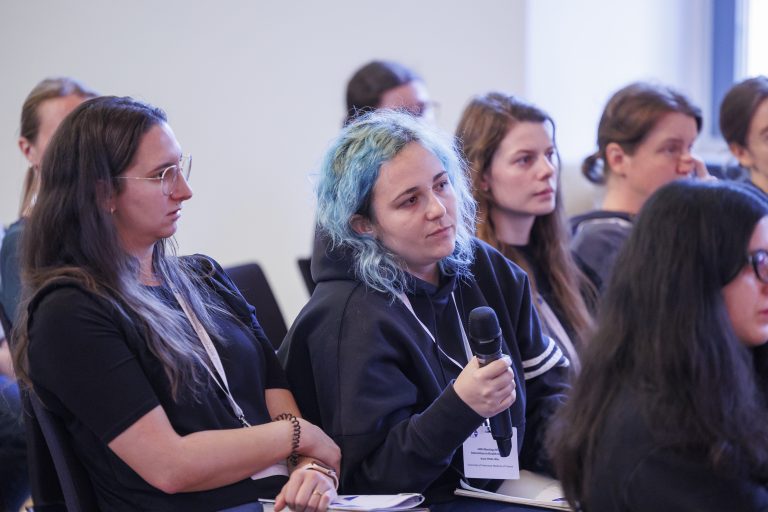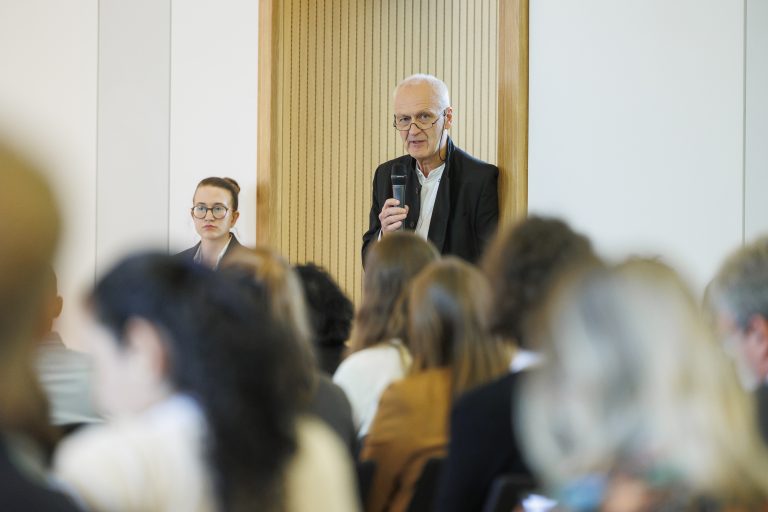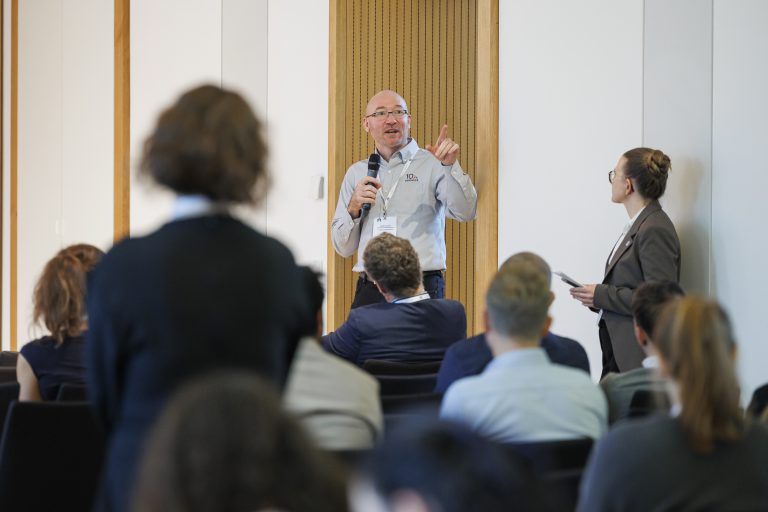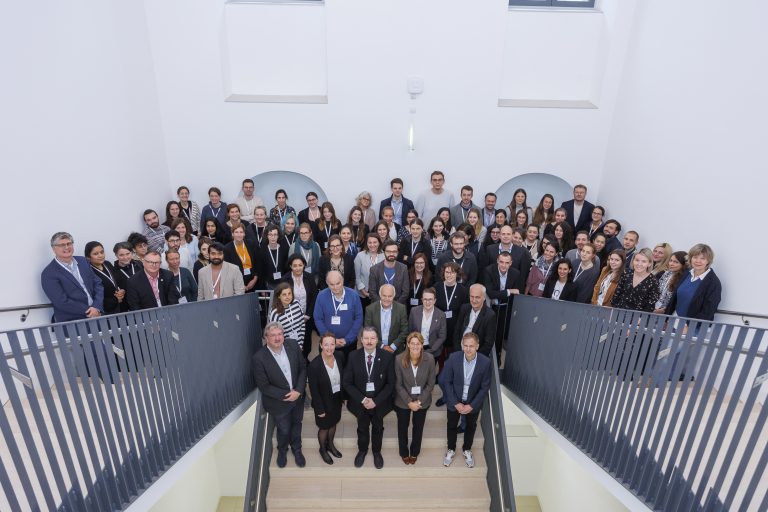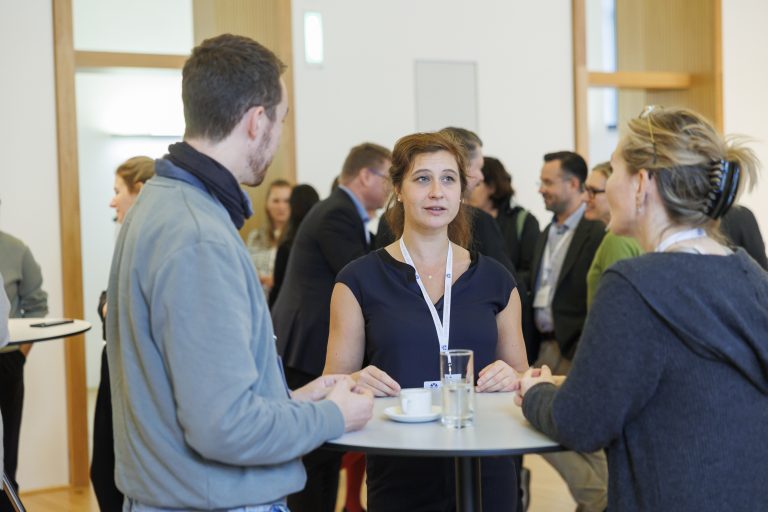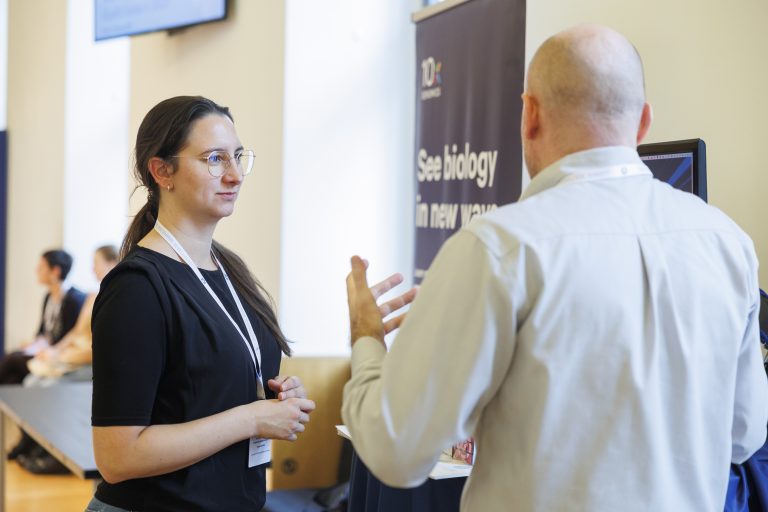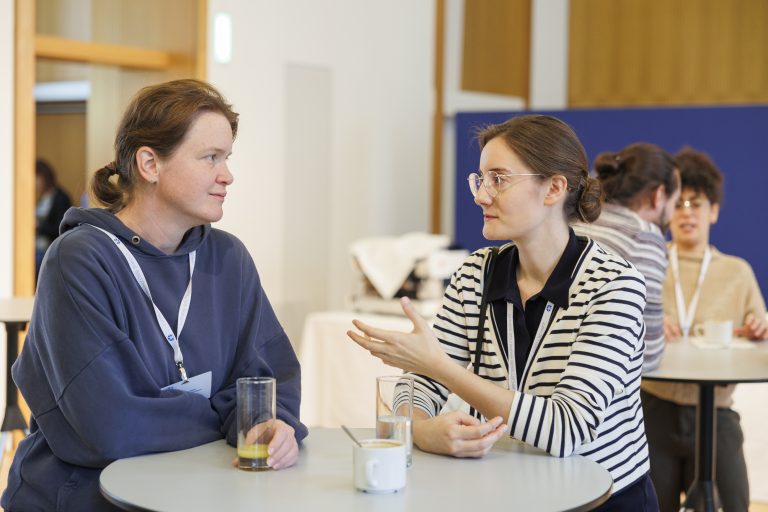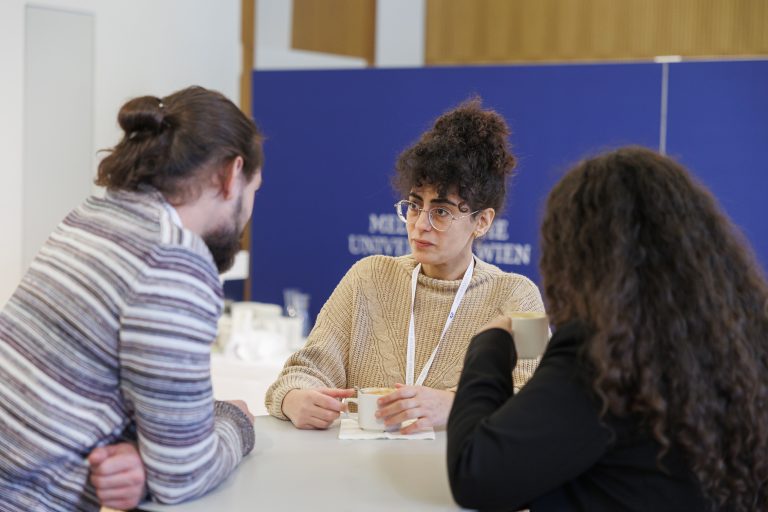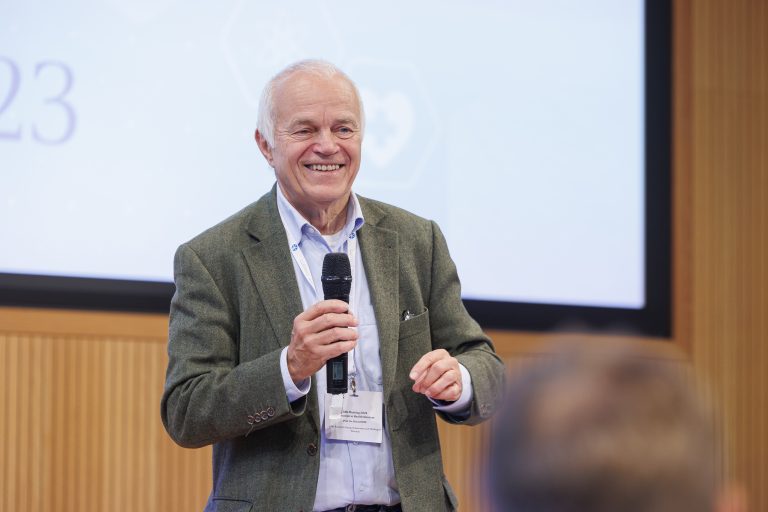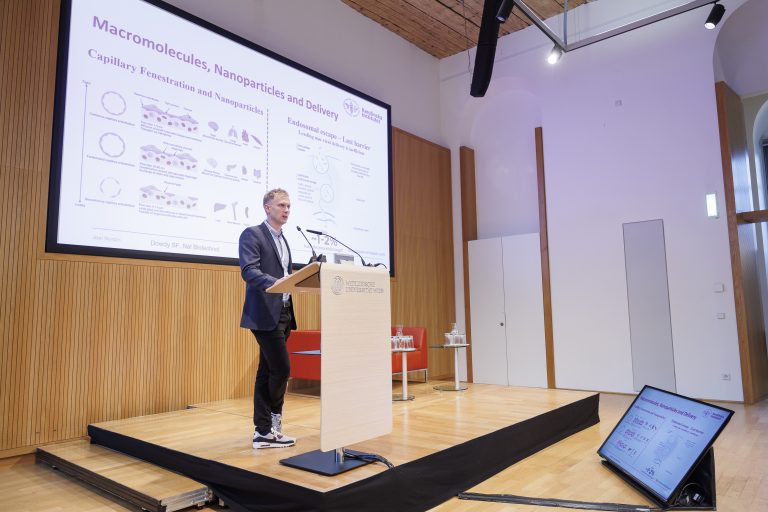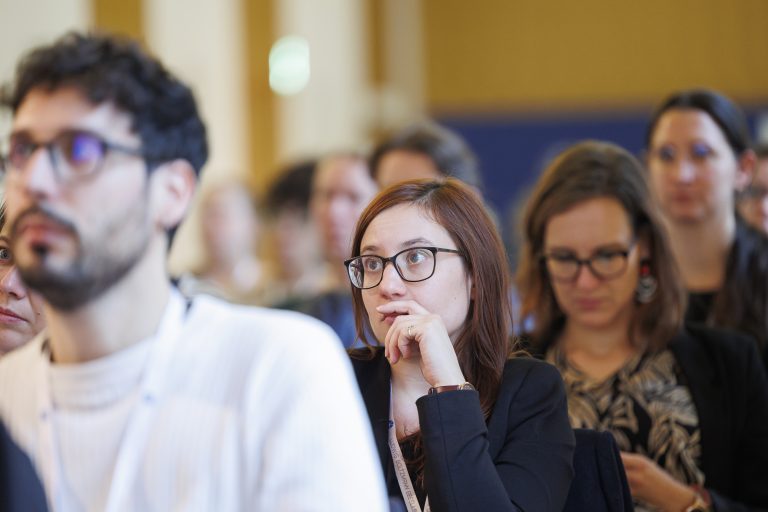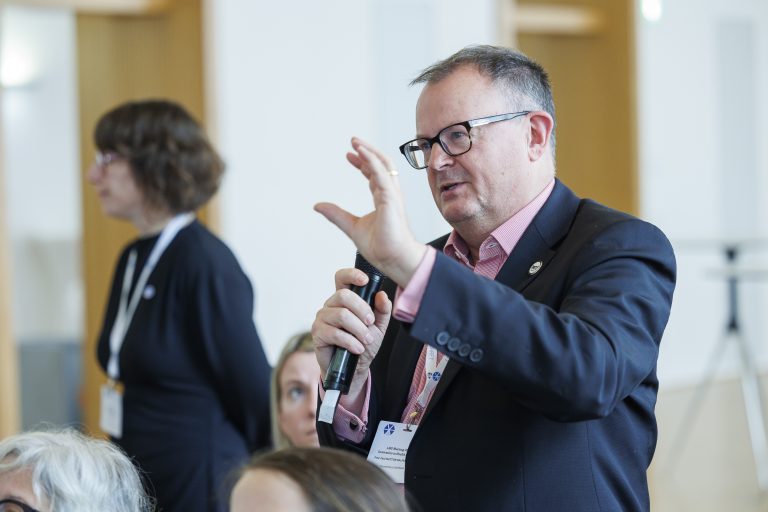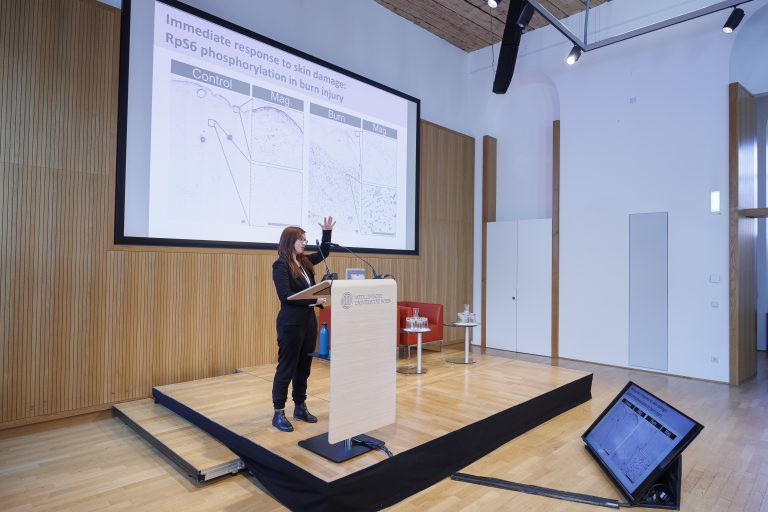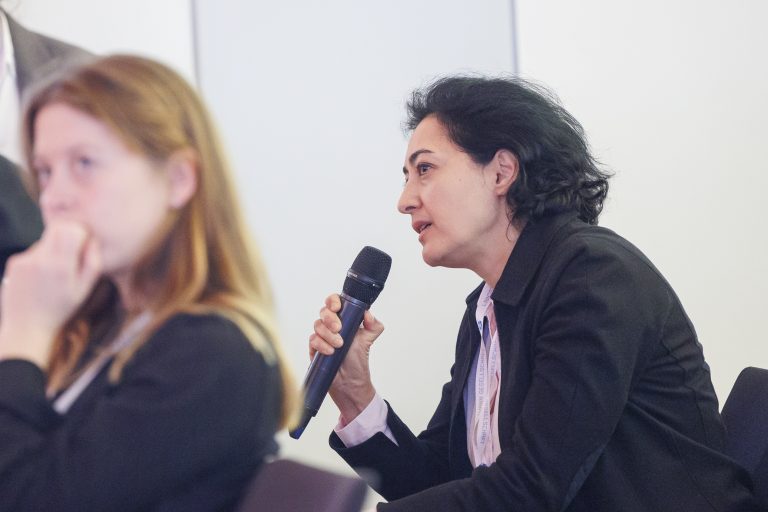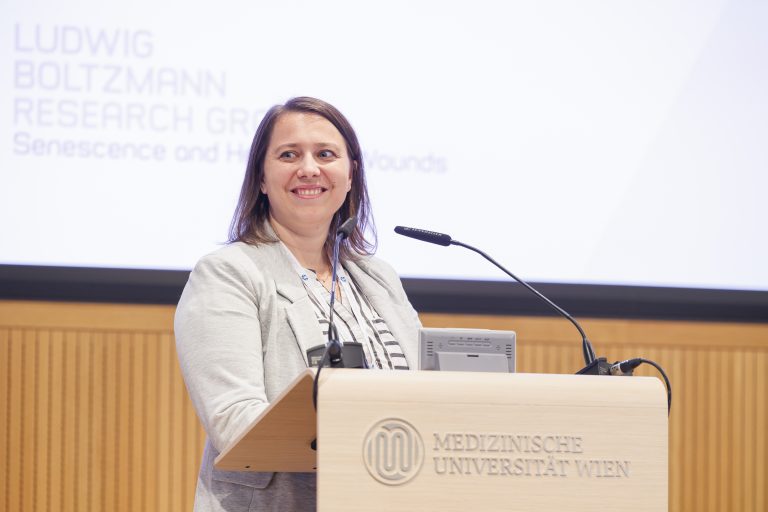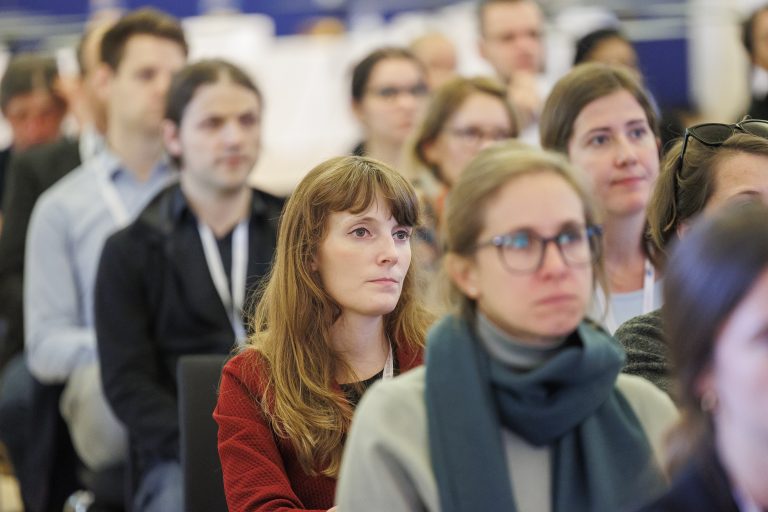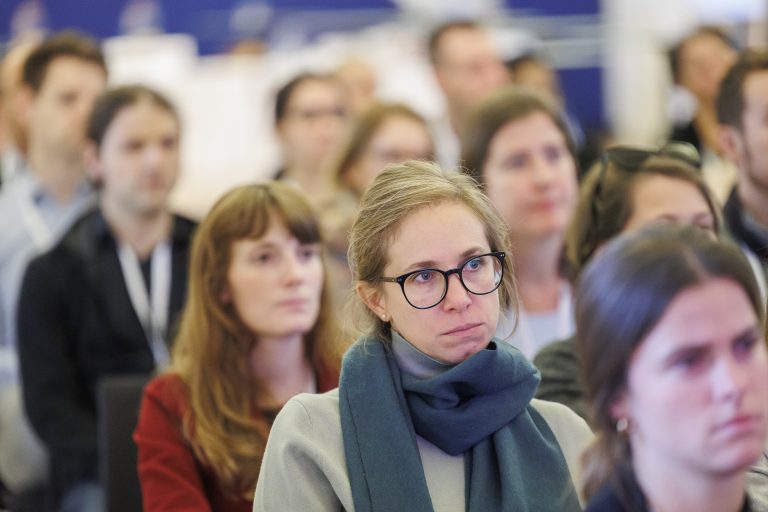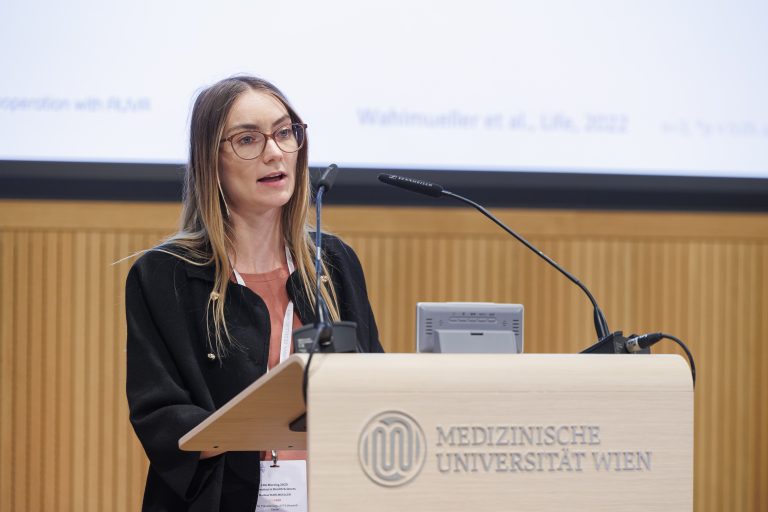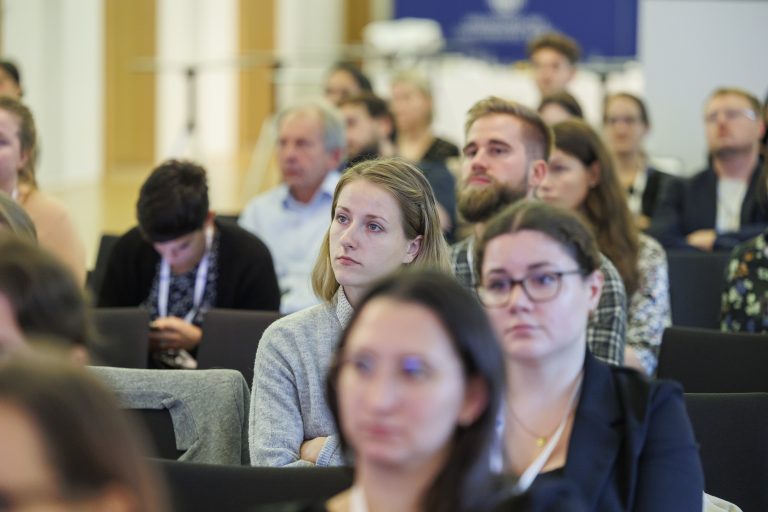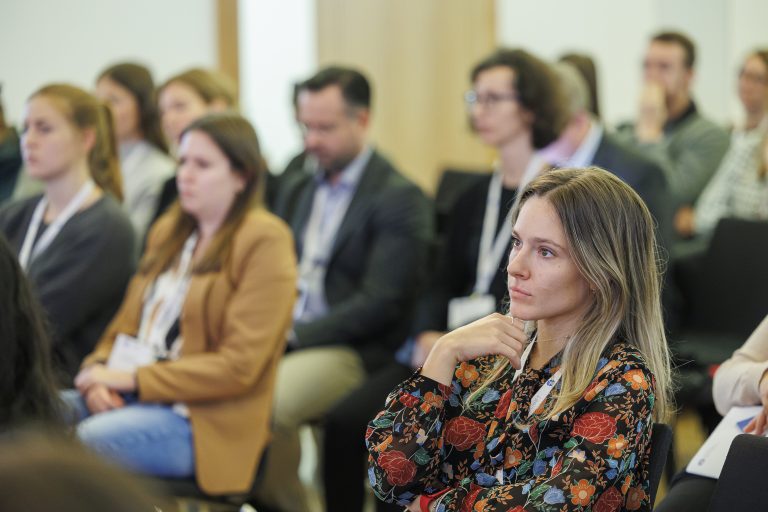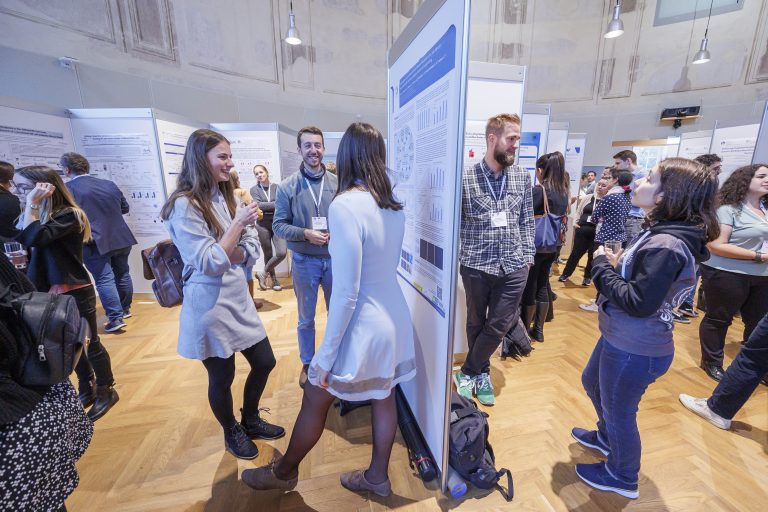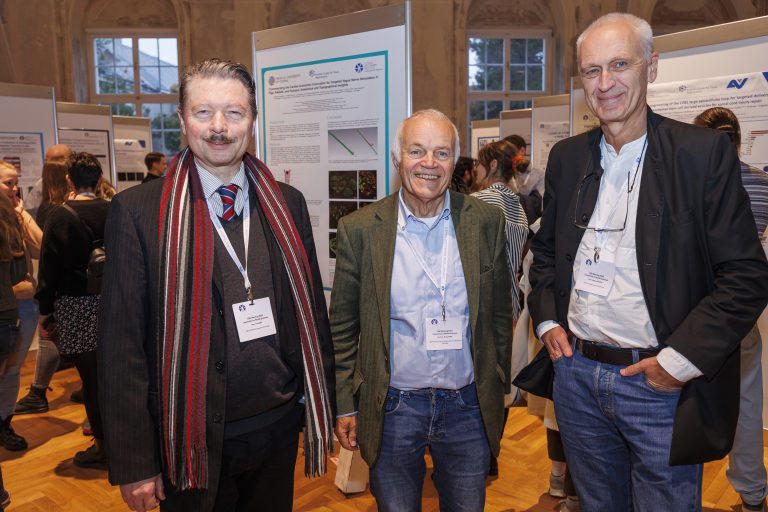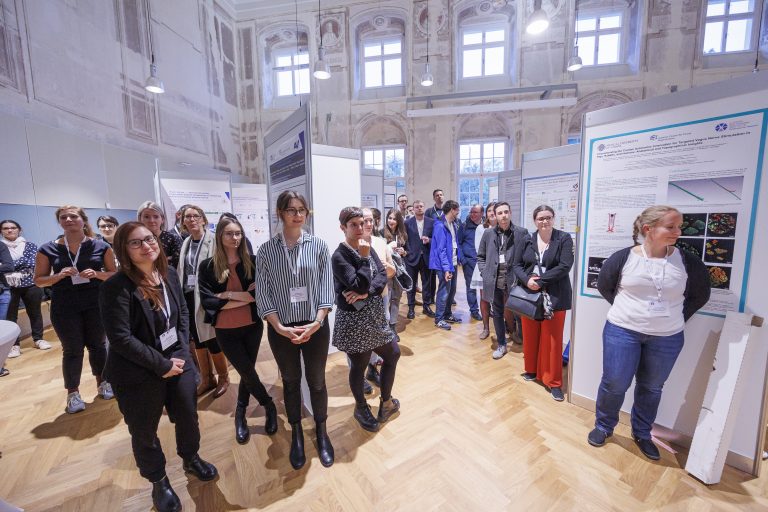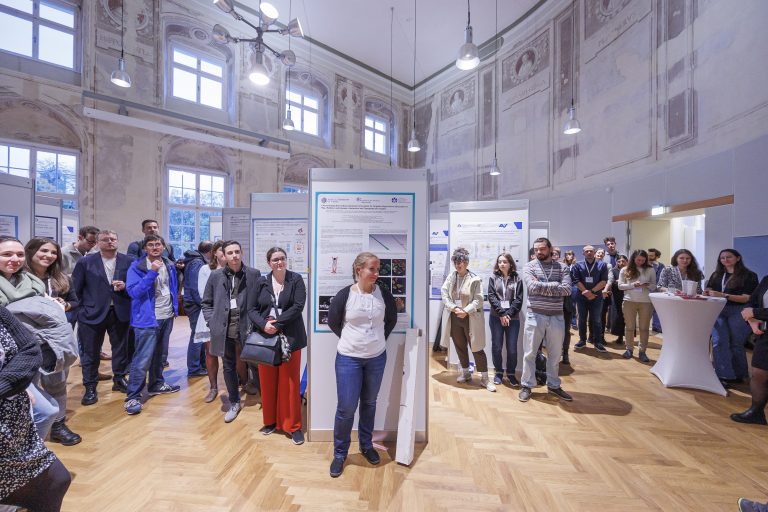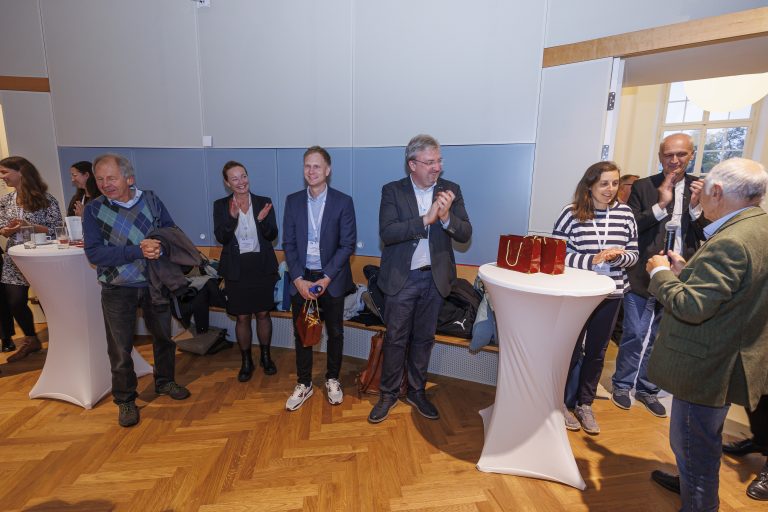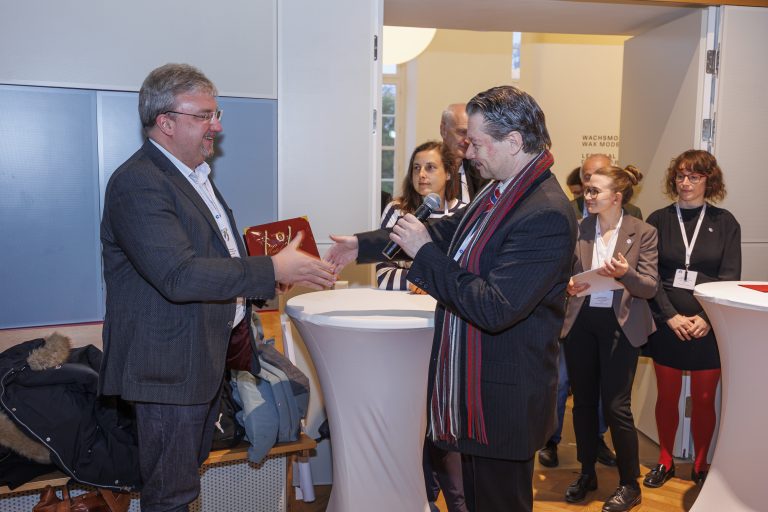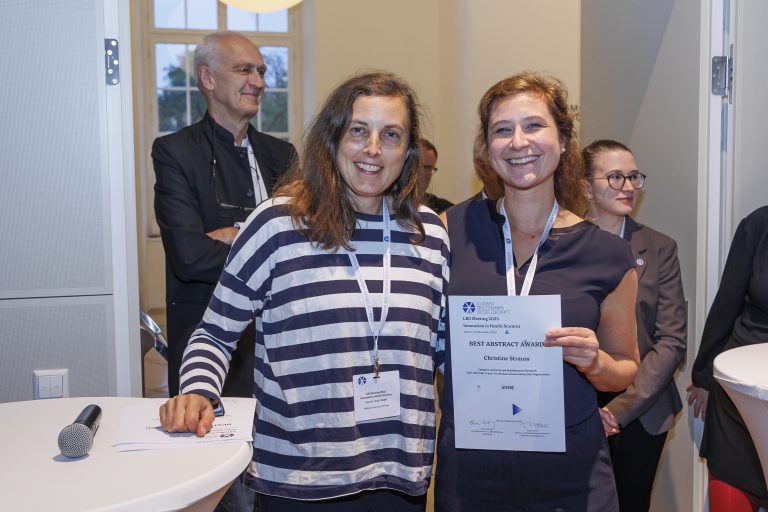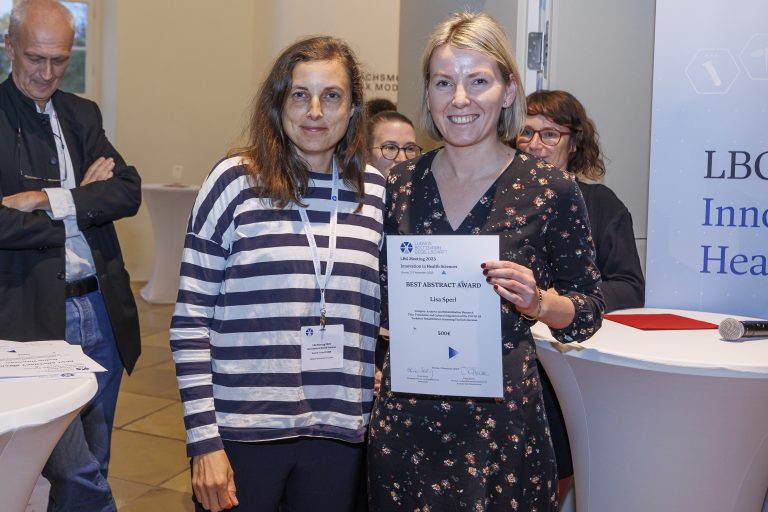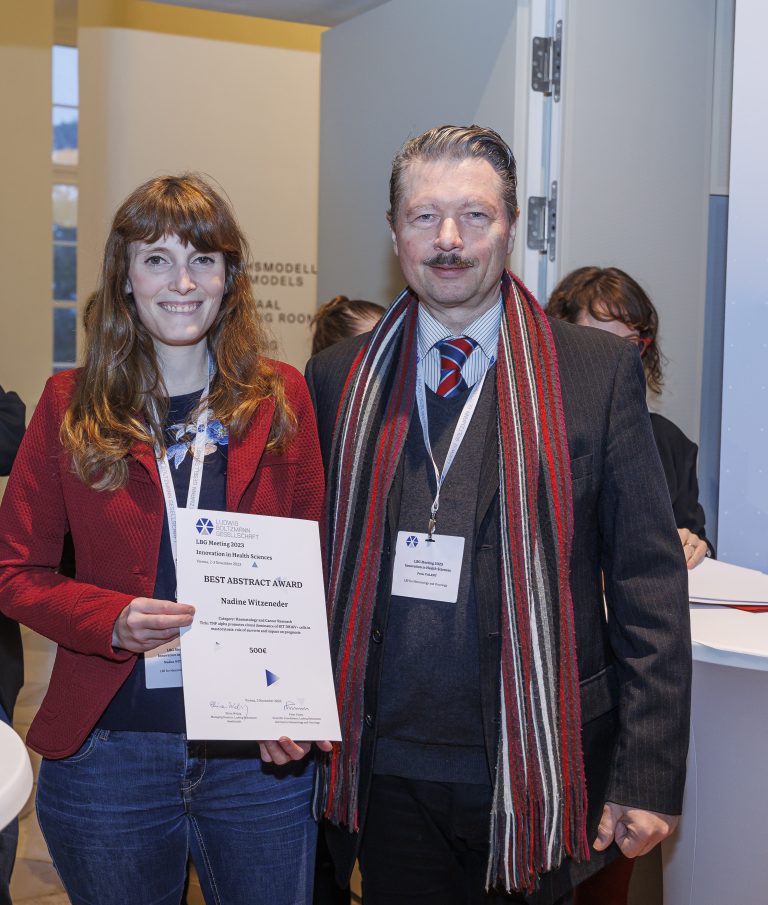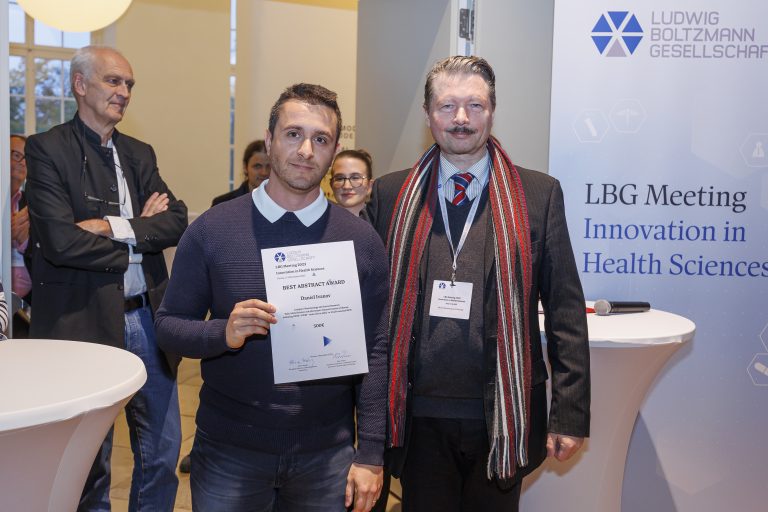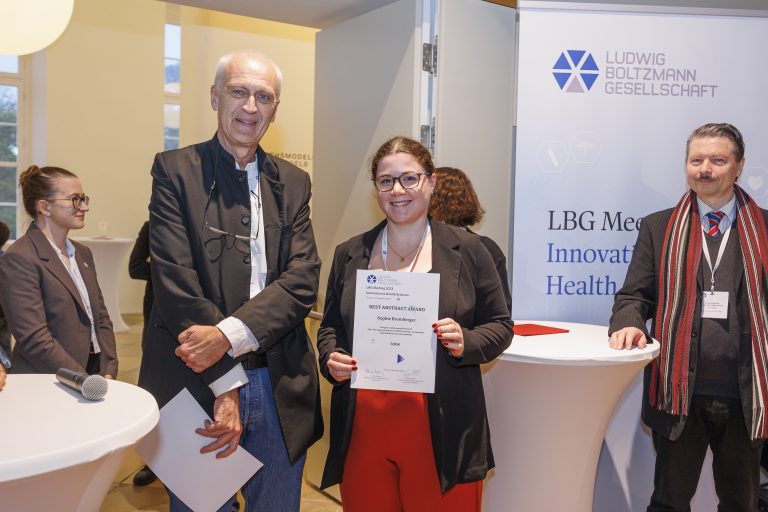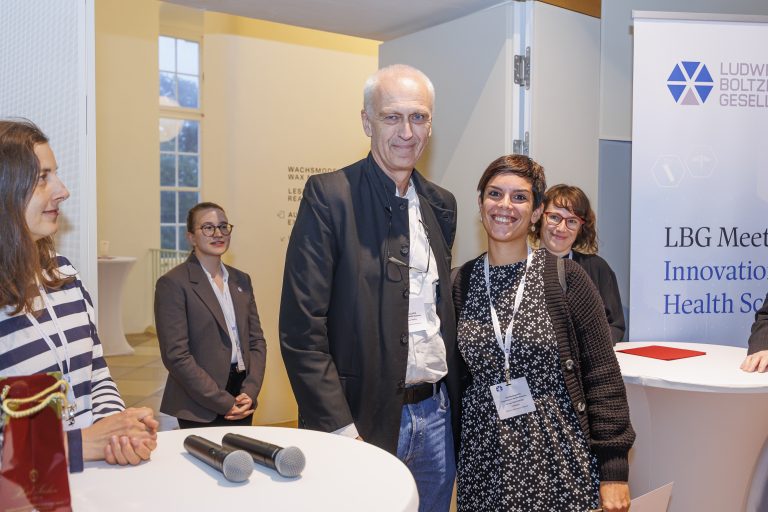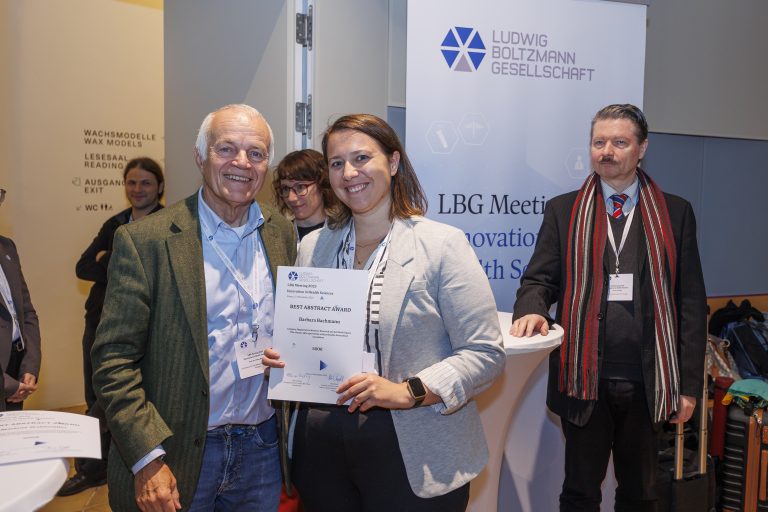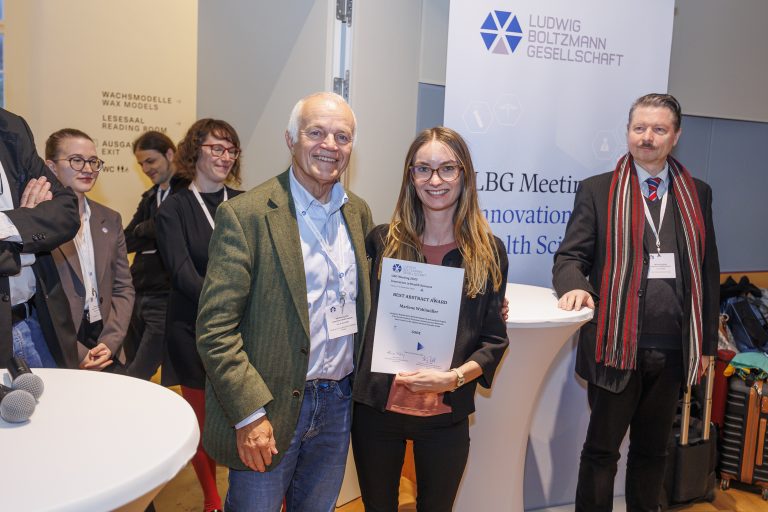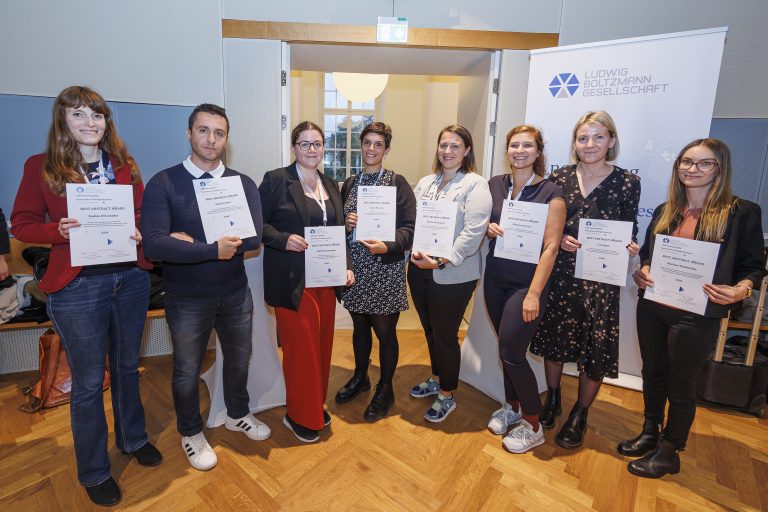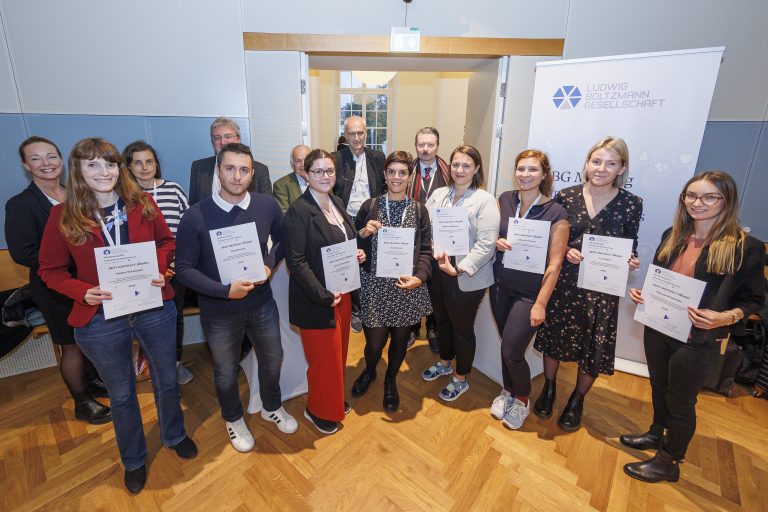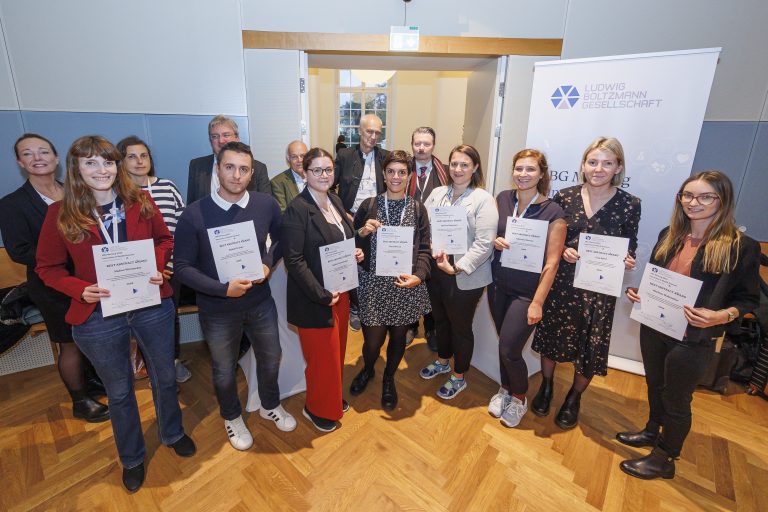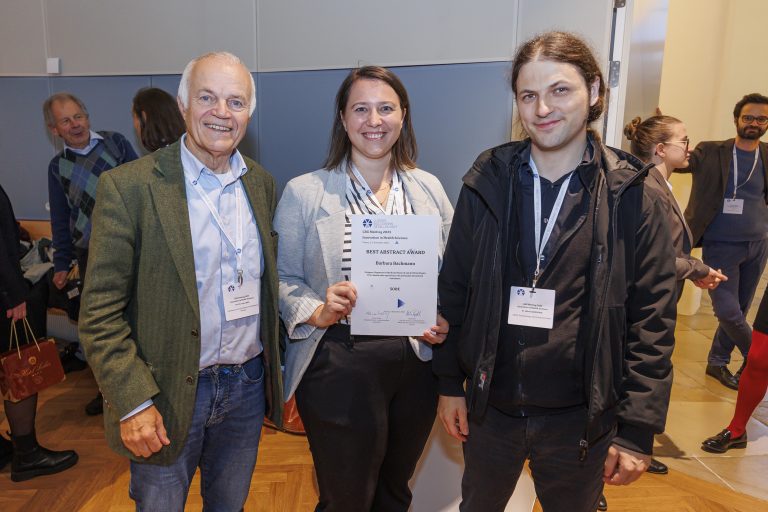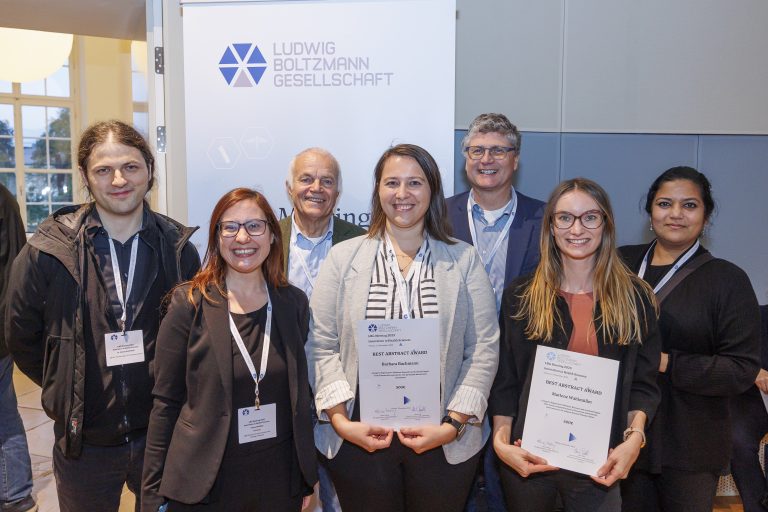This was the LBG Meeting Innovation in Health Sciences 2023
The LBG Meeting Innovation in Health Sciences, held on the 2nd and 3rd of November 2023, was a great success. The event took place at the prestigious Van Swieten Saal of the Medical University and the Josephinum Museum in Vienna, Austria, drawing a large number of young scientists and experts from various fields of health science research.
The event aimed to encourage and support young scientists by offering them an opportunity to stage their work and network with international experts.
Day 1 Highlights: The first day began with a “Meet the Expert” segment, which provided an invaluable opportunity for attendees to interact with seasoned researchers. The morning also offered a guided tour to the Josephinum – Medical History Museum Vienna and their unique collection of anatomical wax models.
The meeting officially started with welcome notes from Elvira Welzig, Managing Director at LBG, and Michaela Fritz, Vice Rector for Research and Innovation at MedUni Vienna. The highlight of the afternoon was the Super Keynote by Prof. Elly Tanaka, who shared insights on learning from natural examples of regeneration.
Scientific Sessions: The thematic sessions were rich with content, featuring keynote lectures by international experts and oral presentations of the best submitted abstracts. The sessions covered a wide range of topics, including Arthritis and rehabilitation research, cardiovascular research, haematology and cancer research, and regenerative medicine research and artificial organs.
The first thematic session focused on Arthritis and Rehabilitation, featuring a keynote lecture by Dr. Rikke Moe. Dr. Moe discussed the challenges and opportunities of navigating osteoarthritis, a condition that affects millions of people worldwide. She highlighted the need for better understanding of the molecular mechanisms, biomarkers, and risk factors of osteoarthritis, as well as the development of novel therapies and prevention strategies.
Three selected researchers presented their findings related thematics:
- Christine Strauss discussed the role of Galectins -4 and -8 in Human Intervertebral Disc Degeneration.
- Nasim Nakhost Lotfi presented on the reliability of daily electronic patient-reported outcome measures in primary Sjögren’s Syndrome, osteoarthritis, and psoriatic arthritis.
- Valentin Ritschl shared a qualitative, biographic study on the importance of normality for families of long-term survivors of pediatric kidney transplantation.
The second thematic session focused on Haematology and Oncology. The keynote made by Prof. Gregor Hörmann presented the applications of artificial intelligence in diagnostic evaluations, highlighting the potential and challenges of using machine learning and deep learning techniques to improve the accuracy and efficiency of hematological diagnosis and treatment.
Three selected researchers presented their findings on various topics related to haematological malignancies:
- Emir Hadzijusufovic: He investigated the mechanisms of adverse vascular events in ponatinib-treated chronic myeloid leukemia (CML) patients, revealing the role of platelet activation and endothelial dysfunction in the development of thrombotic complications.
- Dagmar Gotthardt: She developed a lineage-specific STAT5BN642H mouse model to study natural killer (NK)-cell leukemia, demonstrating the oncogenic effects of the STAT5B mutation and its impact on the NK-cell phenotype and function.
- Daniel Ivanov: He identified and characterized the disease-initiating CD34+/CD38− stem cells in JAK2- or CALR-mutated myeloproliferative neoplasms (MPN), showing the heterogeneity and plasticity of these cells and their resistance to conventional therapies.
The day concluded with a poster walk coupled with a get-together in the Lecture Hall of the Josephinum Museum
Day 2 Highlights
The third thematic session focused on Cardiovascular Research. In a keynote address Prof. Vilahur discussed novel targets and strategies for acute cardioprotection, a field that aims to reduce the damage and improve the recovery of the heart after ischemia-reperfusion injury, a common cause of myocardial infarction and heart failure. She highlighted the potential of pharmacological and non-pharmacological interventions, such as antioxidants, anti-inflammatory agents, stem cells, and preconditioning, to modulate the molecular and cellular pathways involved in cardioprotection.
The three young researchers that were selected based on their abstract presented their findings in the field of cardiology:
- Lorenzo Civilla: He developed a physical and augmented-reality patient-specific platform for neurovascular surgery training, which combines 3D-printed models of the patient’s anatomy and augmented reality glasses to simulate realistic surgical scenarios. He demonstrated the feasibility and usefulness of the platform for improving the skills and confidence of neurovascular surgeons.
- Laura Boccuni: She dissected the impact of reactive oxygen species (ROS) during macrophage differentiation in atherosclerosis, a chronic inflammatory disease of the arteries that leads to cardiovascular complications. She showed that ROS modulate the expression and function of key transcription factors and cytokines that regulate the polarization and activation of macrophages in the atherosclerotic plaque.
- Sophie Bromberger: She investigated the target promiscuity of BRAF inhibitors, a class of drugs used to treat melanoma and other cancers, and its effects on endothelial function and signaling. She found that BRAF inhibitors impair the endothelial nitric oxide synthase (eNOS) pathway and induce endothelial dysfunction, which may increase the risk of cardiovascular adverse events in patients treated with these drugs.
The event continued with a Technology Session, where two speakers showcased the latest innovations in biomedical engineering and spatial technologies. Dr. Johannes Hackethal, CEO of THT Biomaterials GmbH, introduced the concept of placenta upcycling, which involves using placental tissue as a source of biomaterials for various applications. Dr. Johanna Stergiadou, Science and Technology Advisor at 10x Genomics, demonstrated how high-resolution spatial technologies can be used to study the breast cancer microenvironment of FFPE samples.
The fourth and final thematic session of the LBG Meeting Innovation in Health Sciences 2023 focused on Traumatology, featuring a keynote lecture by Ass. Prof. Joel Nordin and three selected talks. Joel Nordin discussed the potential of extracellular vesicles (EVs) for biomedical applications, especially for targeted drug delivery. He explained how EVs, which are membrane-bound nanoparticles released by cells, can be engineered to carry specific cargoes and target specific tissues or cells, enhancing the efficacy and safety of therapeutics.
Three selected researchers presented their research in the field of Regenerative medicine research and artificial organs:
- Helene Dworak: She identified the p-rpS6-zone, a region of phosphorylated ribosomal protein S6, as a marker of wounding response and the healing process. She showed that the p-rpS6-zone is induced by mechanical stress and regulates the expression of genes involved in inflammation, angiogenesis, and fibrosis.
- Barbara Bachmann: She developed human skin equivalents with perfusable hierarchical vasculature, which can be used as a model system to study wound healing and skin diseases. She demonstrated the functionality and stability of the vascular network and the compatibility of the skin equivalents with different cell types and biomaterials.
- Marlene Wahlmueller: She investigated the role of stress-induced premature senescence and senolytic intervention in the adipose stromal vascular niche, which is a source of mesenchymal stem cells for tissue regeneration. She found that senescent cells impair the regenerative potential of the niche and that senolytic drugs can restore the functionality and viability of the niche.
The event concluded with the award ceremony, where the best abstracts (submitted by scientists younger than 35 years) in each session were rewarded with €500 each. The winners were chosen by an international jury of experts based on the originality, significance, and rigor of their research.
The winners:
Arthritis and rehabilitation research
- Christine Strauss: Galectins -4 and -8 in Human Intervertebral Disc Degeneration
- Lisa Sperl: Translation and Cultural Adaptation of the COVID-19 Yorkshire Rehabilitation Screening Tool into German
Cardiovascular research
- Laura Boccuni: Dissecting the impact of reactive oxygen species during macrophage differentiation in atherosclerosis
- Sophie Bromberger: The target promiscuity of BRAF inhibitors compromises endothelial function and signalling
Haematology and cancer research
- Daniel Ivanov: Identification and phenotypic characterization of disease-initiating CD34+/CD38− stem cells in JAK2- or CALR-mutated MPN
- Nadine Witzeneder: TNF alpha promotes clonal dominance of KIT D816V+ cells in mastocytosis: role of survivin and impact on prognosis
Regenerative medicine research and artificial organs
- Barbara Bachmann: Human skin equivalents with perfusable hierarchical vasculature
- Marlene Wahlmüller: Stress-Induced Premature Senescence and Senolytic Intervention in the Adipose Stromal Vascular Niche
b. The winners of the Best Abstract Awards were chosen by an international jury of experts based on the originality, significance, and rigor of their research. Ludwig Boltzmann Gesellschaft/APA-Fotoservice/Rudolph
